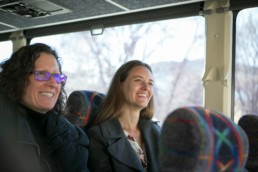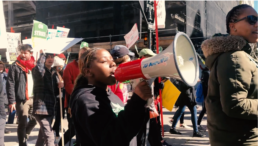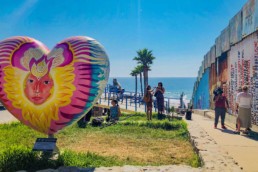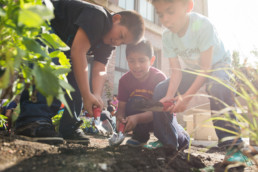Communities First Infrastructure Alliance
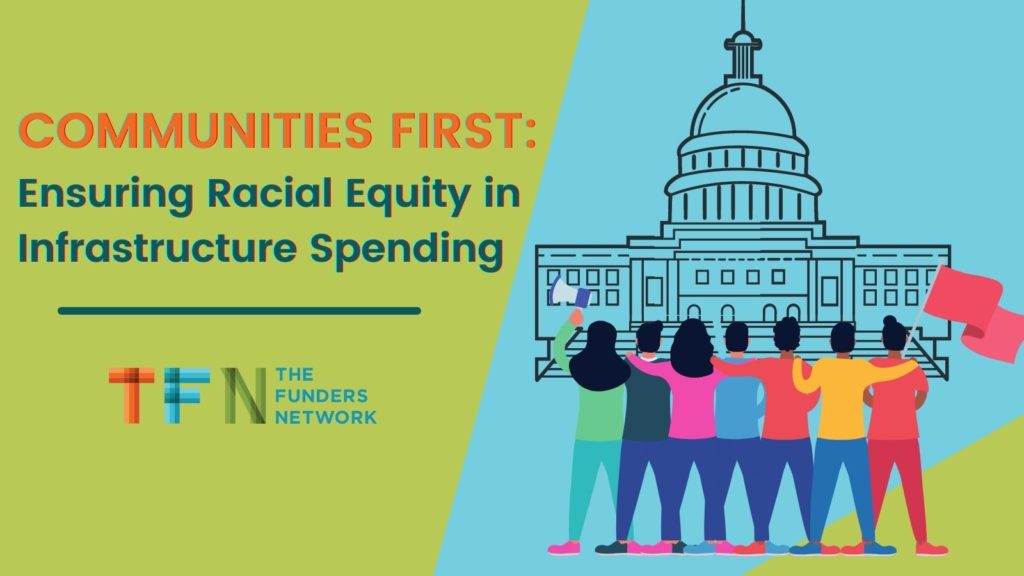
A few months ago, we hosted the #TFN2022 post-conference event, Communities First: Ensuring Racial Equity in Infrastructure Spending — setting the stage for future action, connection and collaboration.
We're excited to share an update on these efforts to ensure federal infrastructure dollars flow equitably, smoothly and directly into BIPOC communities.
Where are we now
First, the Communities First Infrastructure Alliance is activated!
The Funders Network has joined with more than 50 valued-aligned partners committed to Communities First principles. The Communities First Infrastructure Alliance is working with technical assistance providers, frontline communities and government leaders to build just, equitable, and more resilient communities, using the Infrastructure Investment & Jobs Act (IIJA) funds.
The Alliance is led by national equity-centered leadership groups including:
- PolicyLink
- Race Forward
- Government Alliance for Racial Equity (GARE)
- Institute for Sustainable Communities (ISC)
- Full Spectrum Capital Partners
- New School Tishman Environment and Design Center
- EJ Movement Fellowship
Other national, regional and local organizations involved in the Alliance include the Center for American Progress, Natural Resource Defense Council, New Urban Mobility (NUMO) Alliance, Partnership for Southern Equity, Local Initiatives Support Coalition (LISC), Neighborhood Funders Group, Urban Institute, Greenlining Institute, Emerald Cities Collaborative and Smart Growth America, to name just a few.
The Communities First Infrastructure Alliance members will work collectively to support communities with the resources, capacity and technical assistance required to actualize community-centered plans, projects and visions to meet this moment for the movement.
Second, Communities First is in active conversations with representatives from USDA, EPA and DOT as they seek to identify demonstration sites in key geographic regions. Once these sites have been identified, we look forward to working with the agencies to maximize their impact of technical assistance support.
Finally, in partnership with Amalgamated Foundation, the Communities First team has outlined the design for the funding infrastructure necessary to build the capacity for the organizations on the ground, as well as planning grants, matching grants, bridge loans, and other sources of funds to ensure that the federal money can flow with racial equity at the center.
The amount of work these last few weeks has led to incredible progress. But there is still so much work to do.
It’s time to begin building the fund that can provide the capacity for the organizations on the ground, as well as planning grants, matching grants, bridge loans, and other sources of funds to ensure racial equity in federal infrastructure spending.
Read on for additional action items and resources and please do not hesitate to reach out with any questions.
We are all in this together.
Action Items
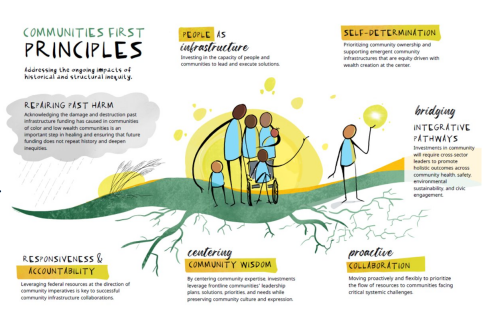
➡ Learn more and join the Communities First Infrastructure Alliance
➡ Fund Communities First to be the conduit of philanthropic support to frontline communities as they prepare to absorb federal funds in the future. Reach out to Helen Chin, helen@communitiesfirst.us to discuss procurement options.
Resources
White House Announcement
Read the May 18 White House Announcement highlighting philanthropic, nonprofit & labor organizations, including the Communities First Infrastructure Alliance | White House Releases Technical Assistance Guide to Help Communities Unlock Resources From Bipartisan Infrastructure Law
Media
Streetsblog | Episode 383: A Communities First Infrastructure Alliance
Research Pieces
PolicyLink | From ARPA to IIJA - Fulfilling the Promise of Equity
Communities First | ARPA Report
Blog
ImpactAlpha Policy Corner | Keeping communities at the center of equitable infrastructure by reimagining risk, power and accountability
In solidarity,

Nine Communities Receive Partners for Places Mini Grants!
BY TFN STAFF
The Funders Network, in partnership with the Urban Sustainability Directors Network, is excited to announce the latest round of Partners for Places Mini Grants. These grants are intended to help local governments, place-based funders and frontline communities build relationships, align project ideas, and center racial equity in water, sustainability and climate action work.
The Partners for Places Mini Grants are designed to spark new relationships or deepen existing connections that will help communities develop a successful Partners for Places project application in the future.
Partners for Places is a matching grant program that improves U.S. and Canadian communities by building partnerships between local government leaders, community groups and place-based funders. National funders invest in local projects developed through these partnerships to advance efforts to create communities that are sustainable, prosperous and just. These sustainability efforts take place from coast to coast, in communities both large and small and focus largely on empowering and engaging low-income neighborhoods.
These nine communities have received Partners for Places Mini Grants:
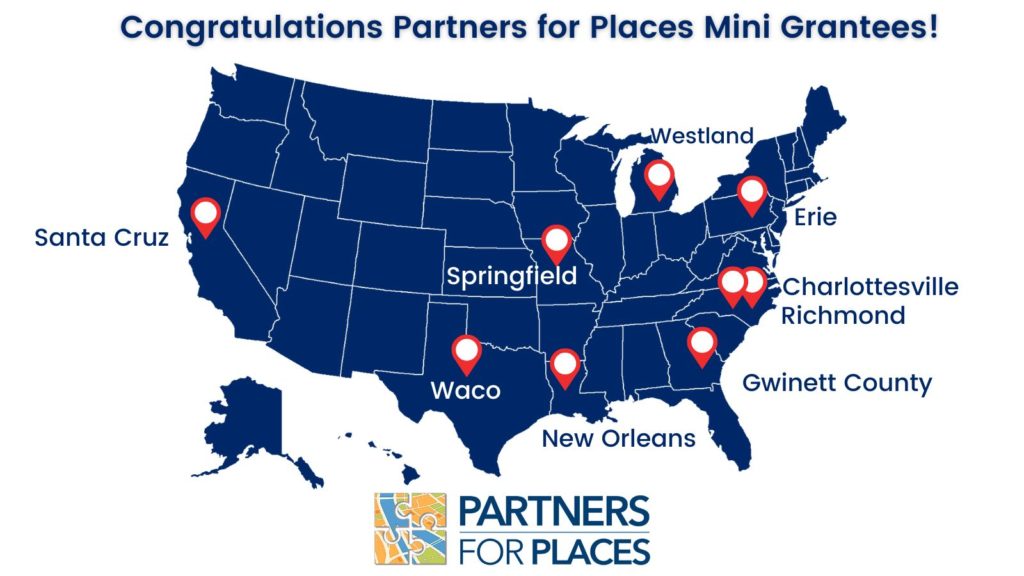 Charlottesville, Va.:
Charlottesville, Va.:
Amount: $10,000
Project title: Addressing Energy Inequity in Albemarle County, VA
Project description: To understand the distribution of energy burden in Albemarle County, both demographically and geographically, in order to identify strategies that the Community Climate Collaborative can utilize to align its climate and equity initiatives with the county's commitment to building a resilient, thriving community.
Frontline community-led group: Community Climate Collaborative
Funder partner: Adiuvans Foundation
Erie, Pa.:
Amount: $10,000
Project title: City of Erie Sustainability Strategy
Project description: The City of Erie will partner with CAFE, The Hamot Health Foundation, CRANE and PennFuture to initiate a sustainability strategic planning process to build stakeholder consensus and implement local policies that help protect our natural resources through a lens of racial equity and environmental justice.
Frontline community-led group: Community Resilience Action Network of Erie, PennFuture and CAFÉ
Funder partner: Hamot Health Foundation
Gwinette County, Ga.:
Amount: $10,000
Project title: Initial Resilience Planning for Unincorporated Norcross
Project description: The project seeks to take initial steps towards a long-term comprehensive, proactive plan for the resilience needs of a diverse, Latino and immigrant-dense community that is under-resourced and climate-burdened.
Frontline community-led group: LiveNorcross/Gwinnett Housing Corporation
Funder partner: Latino Community Fund of Georgia
New Orleans La.:
Amount: $10,000
Project title: Equitable green designs for frontline NOLA neighborhoods
Project description: To help develop an equitable Green Stormwater Infrastructure (GSI) tool for construction prioritization in NOLA communities. Protocols will help communities of color articulate their climate change vulnerability and needs for greening interventions, and be used to demonstrate how other frontline communities might implement a similar prioritization strategy.
Frontline community-led group: Institute for Sustainable Communities and Healthy Community Services
Funder partner: Greater New Orleans Foundation
Richmond Va.:
Amount: $10,000
Project title: Completion of a Neighbor-led Greening Plan for Richmond’s Southside
Project description: A neighbor-led greening plan centers people who are directly impacted by climate injustice and seeks to repair decades of systemic disinvestment in South Richmond.
Frontline community-led group: Virginia Community Voice and Southside ReLeaf
Funder partner: Virginia Outdoor Foundation
Santa Cruz, Calif.:
Amount: $10,000
Project title: Student-Centered Climate/Environmental Justice Art Sister City Partnership
Project description: Partners for Places Mini Grant funds will help support efforts to create a four-stage project which includes: Community Art Exhibition and the creation of mobile art pieces; mobile art pieces at in-classroom presentations to frontline students; student field trips to environmental justice murals; the creation of student art pieces and statements to share with Sister City students/communities.
Frontline community-led group: Sea Walls/Made Fresh Crew, Natural Bridges High School and Star Community High School
Funder partner: Community Foundation Santa Cruz County
Springfield Mo.:
Amount: $10,000
Project title: Urban Waters Access for All
Project description: This grant will be used to better understand people's relationship to water and barriers to accessing regional water resources. Funding will be used to facilitate community outreach and engagement, to better understand their connection to existing local waterways, water quality and barriers to access.
Frontline community-led group: Community Partnership of the Ozarks
Funder partner: Community Foundation of the Ozarks
Westland, Mich.:
Amount: $10,000
Project title: Lower Rouge River Water Trail Leadership Committee
Project description: Friends of the Rouge will utilize funding from the Partners for Places Mini Grant to help facilitate its strategic planning meetings, community outreach, and engagement on park improvements in the Norwayne community in Westland, and help ensure the leadership committee reflects the diversity of the communities aligned with the water trail.
Frontline community-led group: The Norwayne Community Citizens Council and Friends of the Rouge
Funder partner: National Kidney Foundation of Michigan
Waco, Texas:
Amount: $10,000
Project title: Cultivating a Regenerative Food Culture in Waco
Project description: Partners for Places Mini Grant funds will be used to facilitate strategic partnerships to create a regenerative food culture and related infrastructure for food waste diversion from the landfill and education on food waste and composting. Historically disadvantaged Waco neighborhoods and Waco public schools will be the targeted frontline communities.
Frontline community-led group: Mission Waco
Funder partner: Cooper Foundation
About Partners for Places
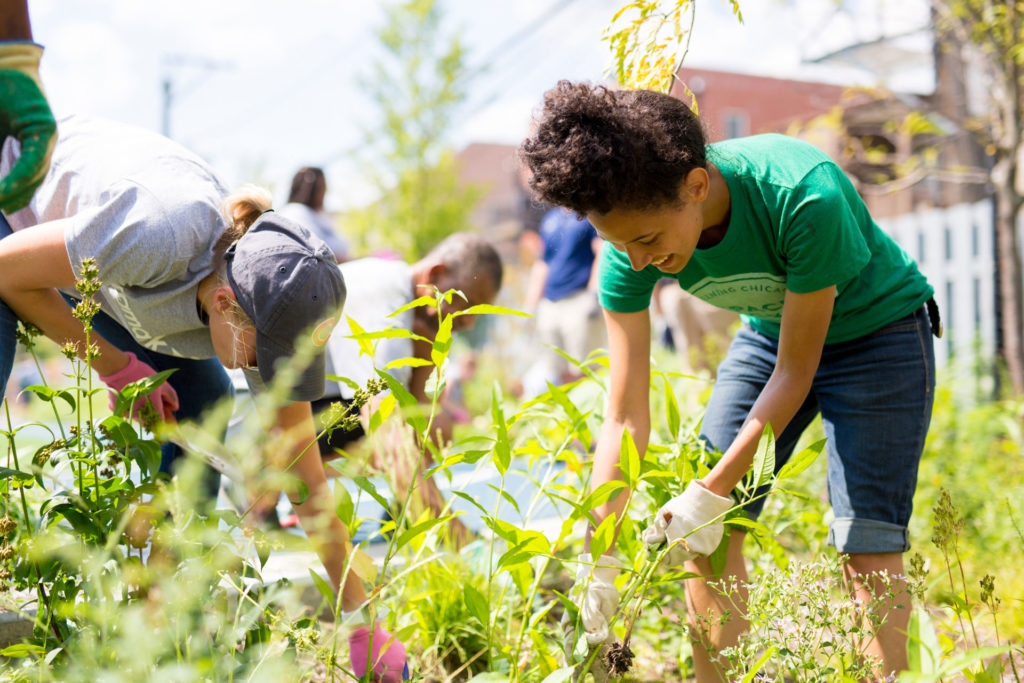
To date, Partners for Places has awarded over $8.5 million across North America in this successful matching grant program, leading to over $18 million in investments.
The matching grant program brings national funder investors together with place-based funders to support equitable sustainable climate action and green stormwater infrastructure projects. The program is currently supported by six investor foundations: The JPB Foundation, The Kendeda Fund, The Kresge Foundation, New York Community Trust, The Allen H. and Selma W. Berkman Charitable Trust, and the Pisces Foundation.
Read about the latest round of Partners for Places matching grant recipients here.
To learn about the previous round of Partners for Places Mini Grants, visit here. (All grant announcements can be found on the Partners for Places webpage.)
For questions about the Partners for Places Mini Grants or matching grants program, please reach out to Ashley Quintana.
Partners for Places FAQ's
→ Where is Partners for Places making an impact?
Read previous grant announcements and explore the Partners for Places Grantee Map here.
→ Where can I learn about completed Partners for Places projects?
Visit the Partners for Places Idea Bank to explore what grantees are doing, learning and sharing.
For more information about Partners for Places, please reach out to Ashley Quintana, ashley@fundersnetwork.org.
"Nature's Artistry" by Olin Gilbert is licensed under CC BY
"Nature's Artistry" by Olin Gilbert is licensed under CC BY
"my community" by marneejill is licensed under CC BY-SA
Highlights | Communities First: Ensuring Racial Equity in Infrastructure Spending
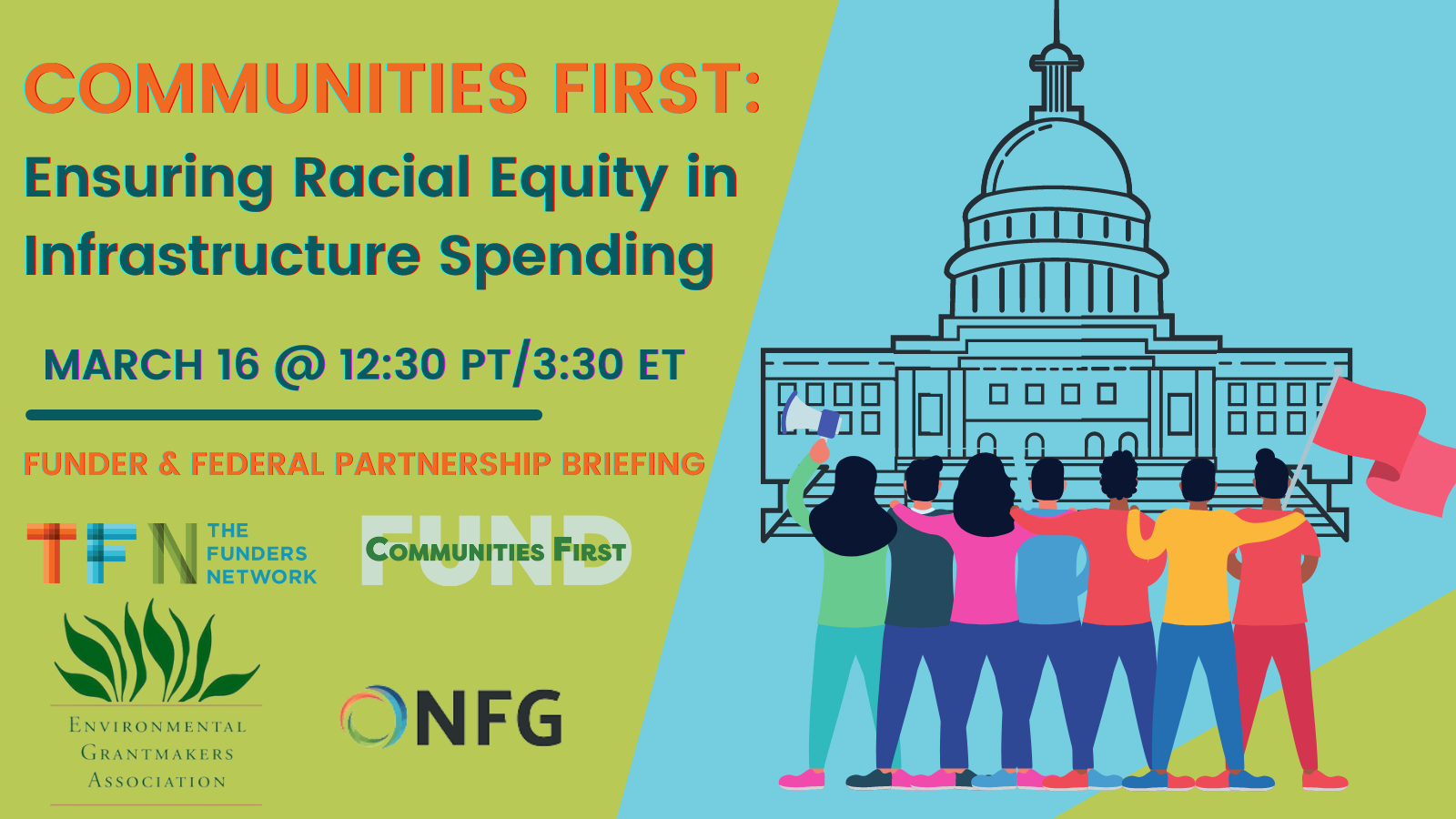
"We need you to help cities, towns and community-based organizations to build capacity and develop great transportation plans that build thriving communities for generations."
- Pete Buttigieg,
Secretary of Transportation
With the federal government poised to invest billions of dollars in infrastructure and economic development, how can we ensure that funds are equitably spent in ways that support historically marginalized communities of color?
The Funders Network recently co-hosted a hybrid gathering to dig into that important question – bringing together a thought-provoking panel of speakers that included leaders in philanthropy, government and community movement-building.
The event, Communities First: Ensuring Racial Equity in Infrastructure Spending, co-hosted by TFN in partnership with Communities First, Environmental Grantmakers Association, and Neighborhood Funders Group, focused on federal infrastructure, economic development and building generational wealth for BIPOC communities.
More than 300 attendees joined us either virtually or in person following our TFN Annual Conference in San Diego on March 16.
Below you will find a full recording of this event, as well as key takeaways, event resources and next steps.
Our thanks to our co-hosts and to our amazing speakers (including Secretary of Transportation Pete Buttigieg) for giving of their time, talents and expertise.
Key Takeaways
- Communities need access to flexible funds. The bureaucracy that often underpins government (and sometimes philanthropic) funding is more harmful than helpful. Solutions to big problems are dynamic. Funding must be dynamic to meet the need most effectively.
- We must build criteria to align with “shovel-worthy” projects and demonstrate good practice. There are many places nationwide that are demonstrating excellent practices of community-led visioning and planning and are detailing how they will approach infrastructure to achieve equity. By building criteria based on these demonstration sites, we can ensure that funds get to where they need to go.
- Technical assistance should be accountable and in service to frontline communities and their priorities. The systemic under-investment in Black, Brown, Indigenous and low-wealth communities has restricted the communities’ ability to direct and to receive trillions of infrastructure dollars. A network of technical services from trusted practitioners who prioritize equity values must be mobilized to support the readiness of communities for investment, as well as to repair past harm and equitable investments.
Event Resources
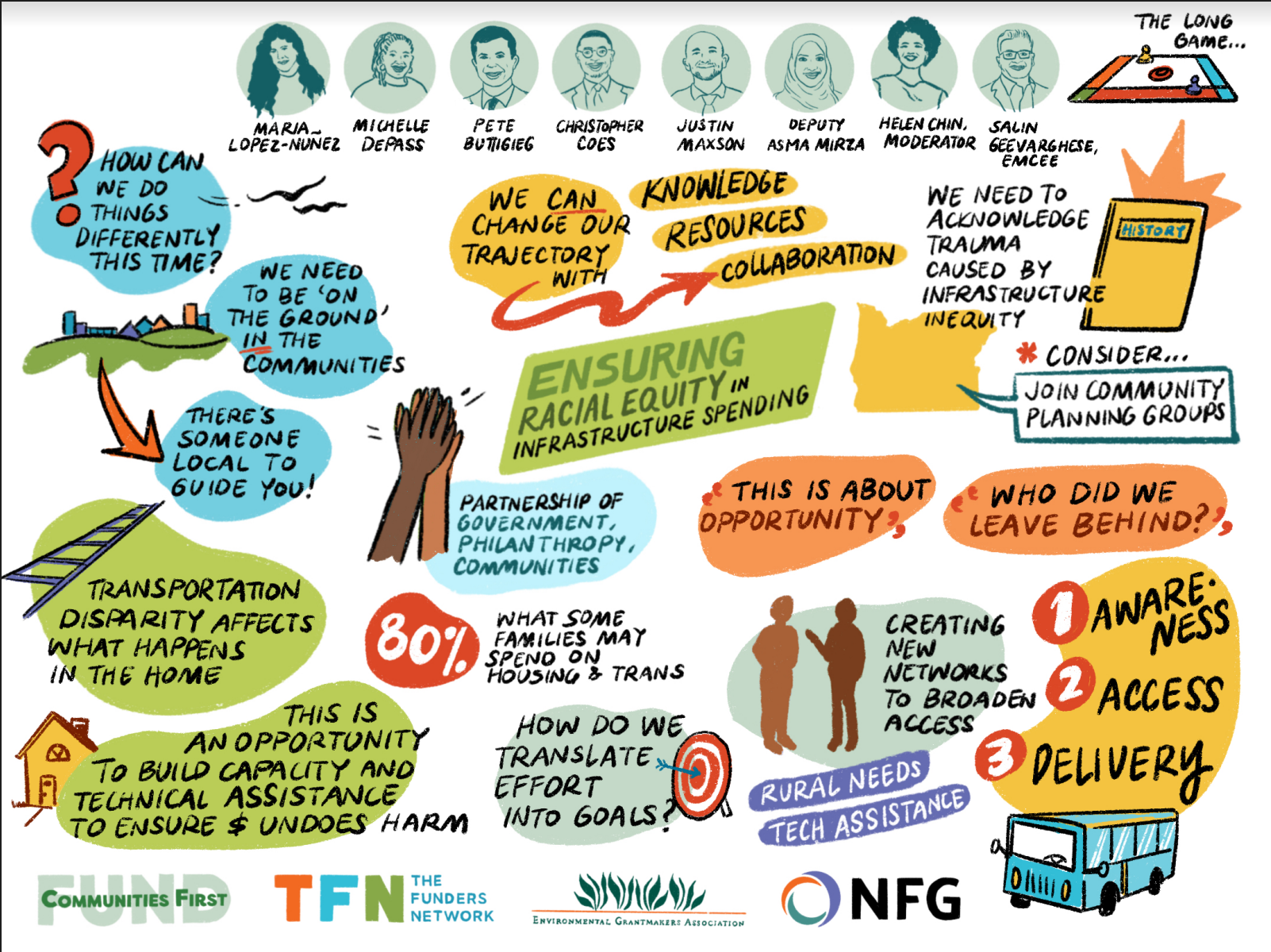
Event recording
Recording of the two-hour virtual briefing is posted on YouTube.
Graphic recordings
Yen Azarro was our incredible illustrator who captured and summarized our conversation with beautiful imagery, as well as the collective operating assumptions for the briefing.
Key Takeaways
High level takeaways of the challenges and solutions related to driving the equitable deployment of federal infrastructure investment are clicked on the Challenges Jamboard and Solutions Jamboard.
Take Action
We urge you to sign-on to the Communities First Principles as these are a solid starting point of commitments from which philanthropy can move forward collaboratively as a sector.
Featured Speakers
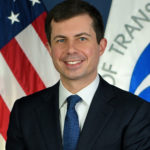
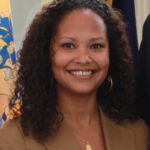
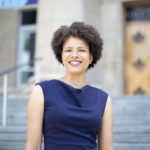
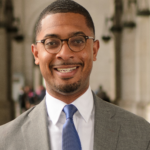
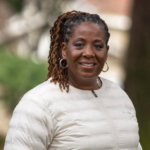


Top row:
Pete Buttigieg, Secretary of Transportation, U.S. Department of Transportation
Kizzy Charles-Guzman, Executive Director, NYC Mayor's Office of Climate and Environmental Justice
Helen Chin, President, Communities First Fund
Christopher Coes, Deputy Assistant Secretary for Transportation Policy, U.S. Department of Transportation
Michelle DePass, Immediate Past President, Meyer Memorial Trust
Radhika Fox, Assistant Administrator, U.S. Environmental Protection Agency, Office of Water
Salin Geevarghese, President & CEO of SGG Insight, LLC

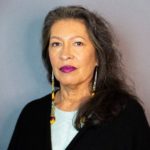
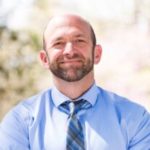



Bottom row:
Sekita Grant, Vice President Programs, The Solutions Project
Judith LeBlanc, Executive Director, Native Organizers Alliance
Justin Maxson, Deputy Under Secretary for Rural Development, U.S. Department of Transportation
Maria Lopez-Nuñez, Deputy Director of Organizing and Advocacy, Ironbound Community Corporation
Michael McAfee, President & CEO, PolicyLink
Deputy Asma Mirza, Chief Of Staff, COVID-19 Response Team at The White House
Who's Speaking @ TFN2022? Plenary Presenters | Flash Talks | Conference Highlights
Who will be taking center stage at TFN's 2022 Annual Conference: Seize the Moment in San Diego?
Our line-up of thought-provoking and inspiring Plenary Presenters and Flash Talk speakers will share their insights on community organizing, collaboration, belonging and movement-building — and how funders can support critical efforts to move our communities toward racial, environmental and economic justice.
We'll learn how youth activist Nalleli Cobo of STAND-L.A. played a central role in fighting an oil company dangerously polluting her South Central L.A. neighborhood, and what we can learn from the coalition of community groups she helped bring together.
We'll hear from Norma Chávez-Peterson, executive director of the ACLU of San Diego and Imperial Counties, about the ongoing fight for civil liberties and justice for marginalized people — and why funders need to step up and “seize the moment” in this pivotal and fragile moment in American democracy.
Our Tuesday Plenary will focus on community organizing and the ways philanthropy often fails those on the frontlines of changemaking, with a frank conversation with Crystal Hayling of the Libra Foundation, Nikkita Oliver of Creative Justice and Diane Takvorian of the Environmental Health Coaliton, moderated by Dr. Carmen Rojas of the Marguerite Casey Foundation.
In our Closing Plenary, we will hear from Jacqueline Martinez Garcel, CEO of the Latino Community Foundation, about people-centered leadership in these complex and uncertain times — and what it takes to fully support the Black, brown and Indigenous leaders pushing for justice on critical issues.
And that's not all: We'll also share in an interactive plenary session to learn actionable takeaways that will help grantmakers support belonging, forge connections, and build community across differences, courtesy of Marnita's Table. And we'll experience the power of storytelling to explore the issues of climate change, economic opportunity and racial equity with a special presentation by San Diego's own Playwrights Project.
Read on for full descriptions of our Plenary & Flash Talk presenters, and be sure to check out our TFN2022 website for the full agenda and conference highlights.
Plenary & Flash Talks
Opening Plenary
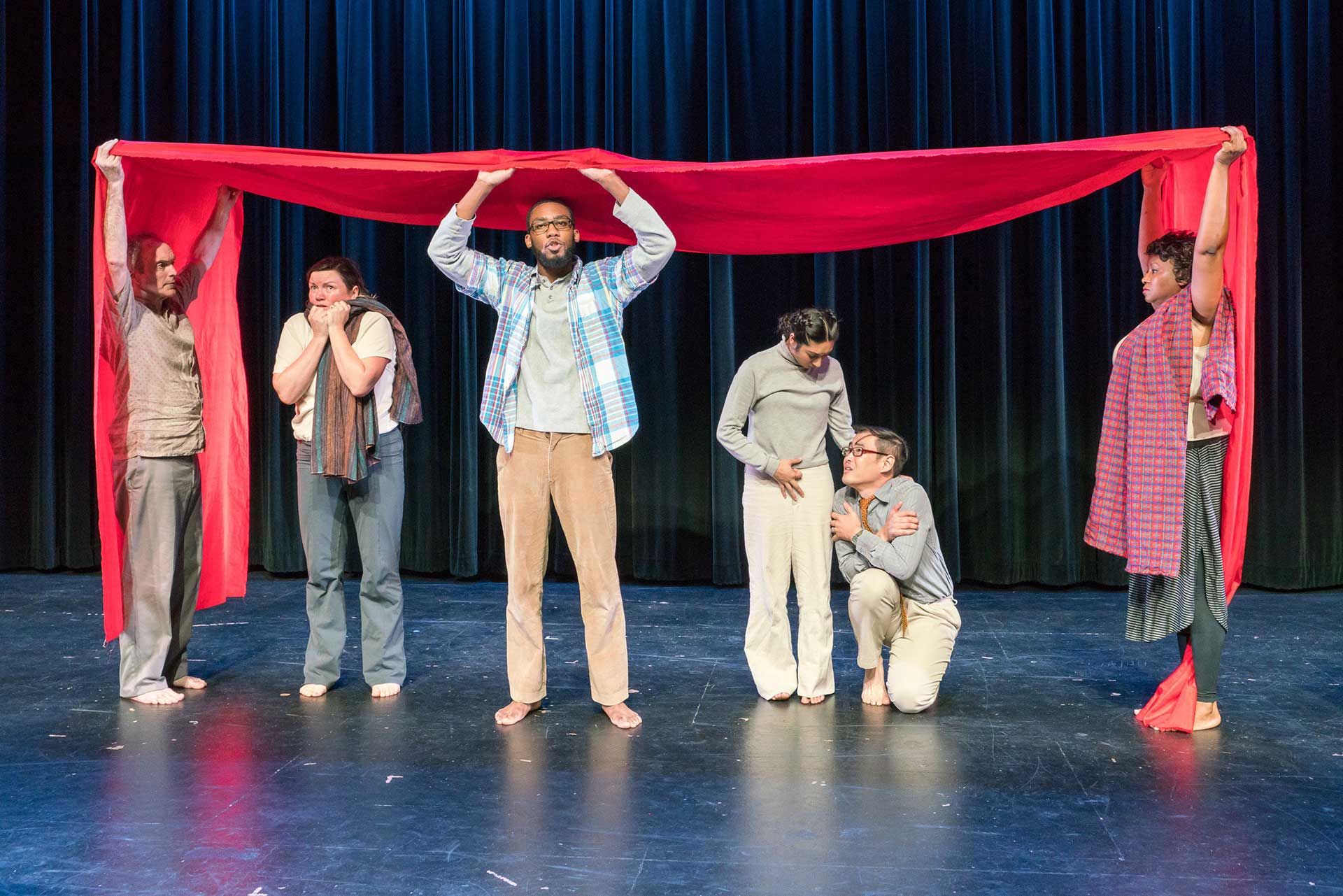
Playwrights Project — Where Stories Take the Stage | Monday, March 14 | 12 p.m.
We’ll officially kick off TFN2022 with a special Opening Plenary presentation by lifting up the voices of San Diego-based performers.
Playwrights Project, which focuses on the power of theater to connect to universal themes, will explore the issues of climate change, economic opportunity and racial equity.
The group’s mission is to empower people of all ages and backgrounds to voice stories through theater, inspiring individual growth and creating meaningful community connections. Playwrights Project programs reach 10,000 people annually, connecting with youth in San Diego schools and underserved populations of all ages.
Monday Afternoon Plenary
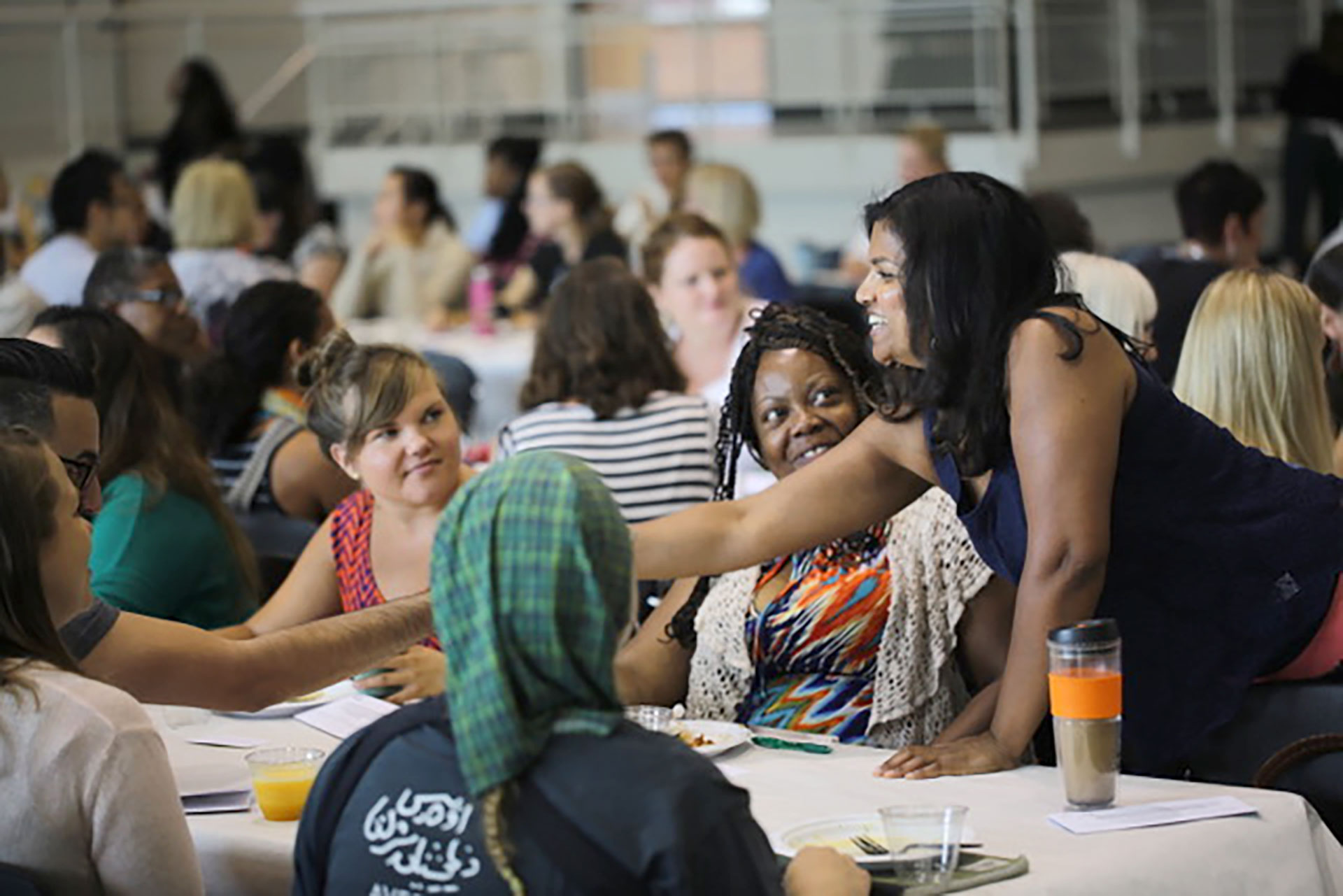
Trust-making: Building Equity, Belonging & Community| Monday, March 14 | 4 p.m.
What’s the difference between “all are welcome here” and “this space was created with you in mind?” How can we build equity and bridge division?
Join us for an interactive, peer-to-peer experience crafted by Marnita’s Table, a mission-driven nonprofit that brings people together to find common ground on important public policy issues. This session will provide practical tools for you to build sustainable community engagement, leadership and collaboration across race, class, culture and other means of self-identity.
We’ll also explore two projects involving collaboration between Marnita’s Table and TFN members that lifted up and leveraged the insights and wisdom of collective community voices: “Healing from Trauma” (with the Catalyst Initiative of The Minneapolis Foundation) and “Foresight for the Future of Health” (with 17 regional and national health foundations, including the Kansas Health Foundation and the Minneapolis Foundation.)
Tuesday Plenary
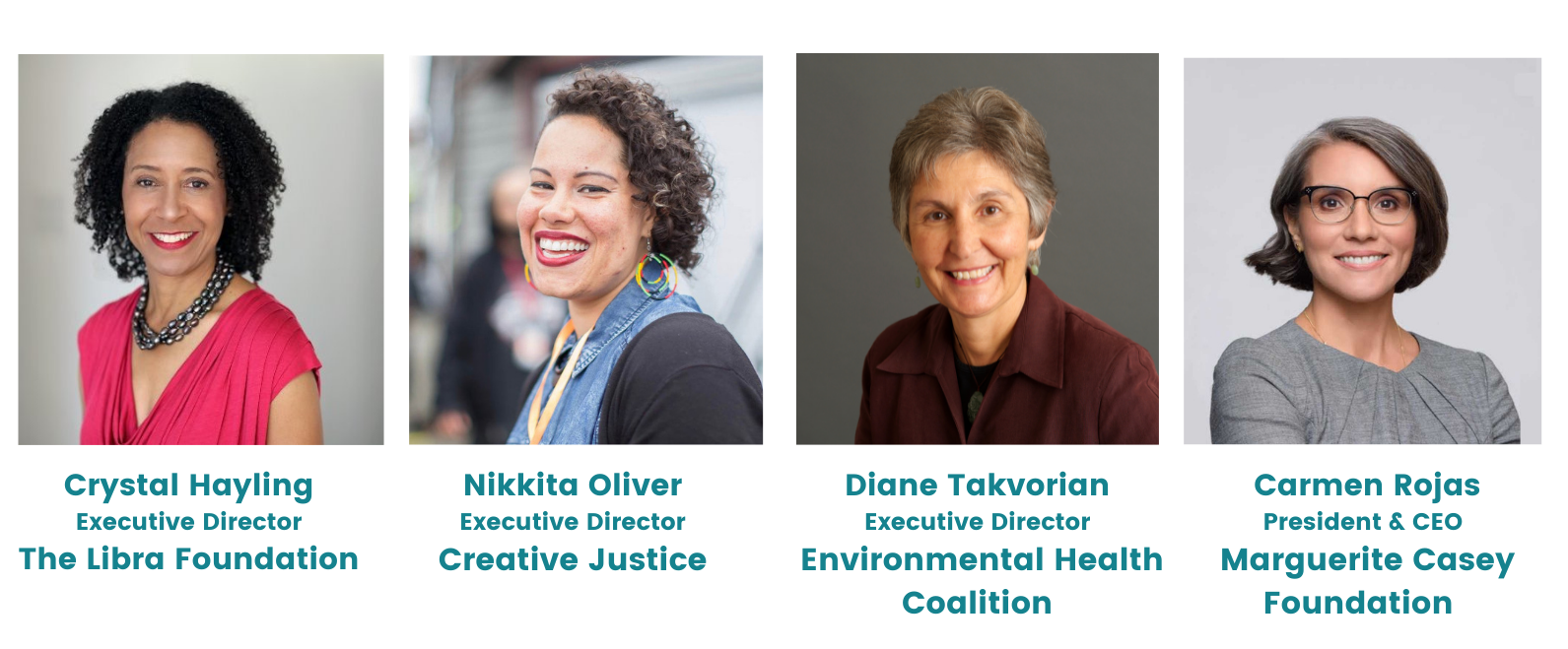
Community Organizing: How Philanthropy Falls Short & How we Can Do Better | Tuesday, March 15 | 9 a.m.
Community organizers work tirelessly to bring about change in the communities they serve. Each win is a step toward building a broader movement for justice, self-determination and transformational change. While foundations increasingly recognize that change starts with community organizing and shifting power, and many share the goals of frontline leaders, the ways that foundations have supported organizing often have caused more harm than good.
Join us for an honest conversation with community organizers and funders as they pull back the curtain on how philanthropic investments have come up short, and share wisdom on how funders can support community organizing differently to much greater effect and impact.
Speakers:
Nikkita Oliver, Executive Director, Creative Justice
Crystal Hayling, Executive Director, The Libra Foundation
Diane Takvorian, Executive Director, Environmental Health Coalition
Carmen Rojas, President & CEO, Marguerite Casey Foundation (moderator)
Closing Plenary
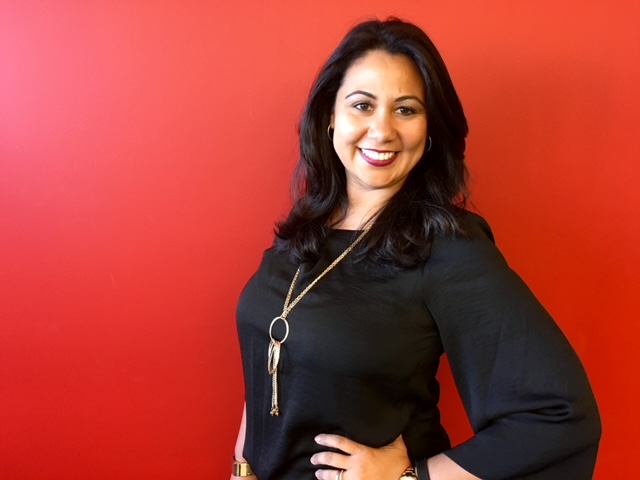
Jacqueline Martinez Garcel
Leadership in this Moment: What it Takes & What it Looks Like | Wednesday, March 16 | 11 a.m.
In frontline communities across the country, Black, brown and Indigenous leaders are fiercely taking risks and pushing radical shifts, working across silos and sectors, and nurturing the next generation of community changemakers.
They are the first to provide mutual aid and support, to stand up to cascading injustices, to build political power, and to demand change. To meet the needs of the communities they serve, they are helping build movements and modeling new leadership formations.
Yet the painful truth is that these leaders are managing multiple crises with extremely limited resources.
In our closing plenary, we will hear from Jacqueline Martinez Garcel, CEO of the Latino Community Foundation to better understand the many ways philanthropy must step up, shift norms and actively invest in leaders who are fighting for racial justice, energy democracy, immigration reform, voting rights and other critical issues.
Flash Talks

Nalleli Cobo
Campaign Organizer, STAND-L.A.; Co-founder, South Los Angeles Youth Leadership Coalition | Monday, March 14, 3:45 p.m.
When a community in South Central L.A. began their fight against an oil company polluting their neighborhood, a young Latina girl played a central role: Nalleli Cobo, who was 9 years old when she started suffering from mysterious body spasms, asthma, headaches and nosebleeds so severe she had to sleep sitting up so she wouldn’t choke on her own blood.
She and her neighbors in this predominately Black and Latinx neighborhood launched a battle against an active oil well site located in front of her house. But Nalleli didn’t stop there: She was part of a group of young activists and local organizations that successfully sued the city to demand more regulations in oil extraction.
Join us to hear from this passionate youth organizer, who is now a campaign organizer for STAND-L.A. and co-founder of the South Los Angeles Youth Leadership Coalition, about how community groups are coming together to protect the health and safety of Angelenos on the front lines of urban oil extraction.
We’ll hear her firsthand account of what inspired and motivated her to take action at an early age — and why philanthropy needs to listen to the voices of this next generation in the battle for environmental justice.
BONUS READ: Learn more about Nalleli's activism in this BBC News story.
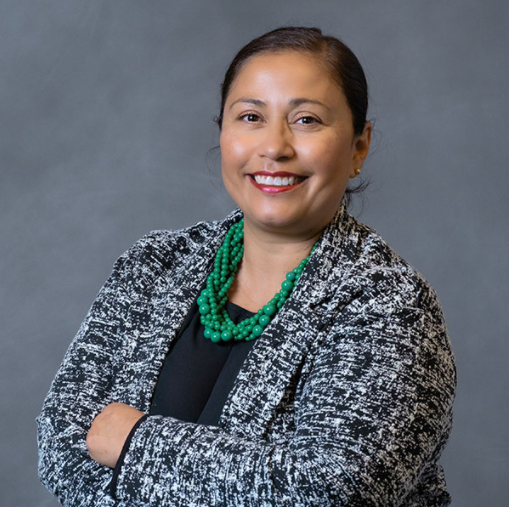
Norma Chávez-Peterson
Executive Director, ACLU of San Diego and Imperial Counties | Wednesday, March 16, 0:50 a.m.
Norma Chávez-Peterson is the executive director of the ACLU of San Diego and Imperial Counties (ACLU SDIC), a prominent force for the protection and expansion of fundamental rights in the region.
An integral member of San Diego’s civil rights community — with nearly two decades of leadership, organizing and advocacy experience in California’s second-most populous county and southern borderlands — she was instrumental in creating the ACLU SDIC’s integrated advocacy campaign to advance priority issues such as criminal justice reform, police accountability and immigrant rights.
Norma will join us for a Flash Talk sharing her insights on the ongoing fight for civil liberties and justice for marginalized people — and why funders need to step up and “seize the moment” in this pivotal and fragile moment in American democracy.
Let's Get Together at #TFN2022!
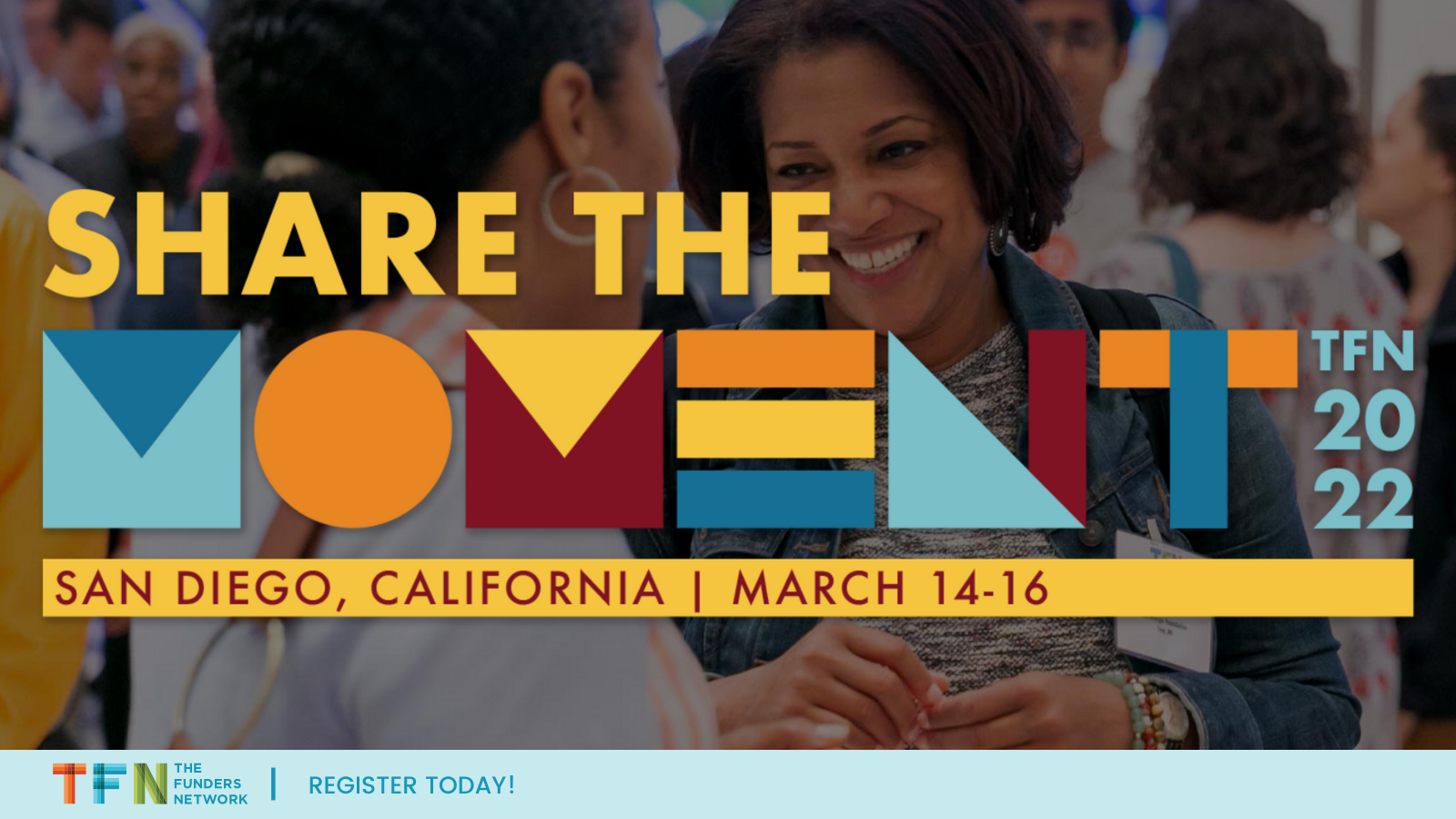
We can't wait to see everyone in San Diego at #TFN2022, March 14-16!
TFN believes that collaboration and connections are where real change takes root.
That's why we've built a learning agenda for #TFN2022 that includes opportunities to socialize, strategize and share with peers and partners in the philanthropic sector.
From a pre-conference convening focused on climate impacts and disaster response to our post-conference briefing on ensuring racial equity in infrastructure spending, we hope our attendees will identify ways to align strategies and catalyze action around critical issues.
Our San Diego conference is also a chance to network and socialize — in person! — for the first time in two years.
Read on to learn more about our Sunday Night at the Movies, Peer-to-Peer Sharing, evening receptions and two theme dinners focused on democracy and inclusive economies. (And our California funders have even more chances to connect at a dinner organized by TFN's Smart Growth California and a gathering to launch the San Diego Funders' Collaborative.)
(Be sure to take a look at our TFN2022 Conference Agenda to see what else we'll be learning in San Diego!)
Although we are excited to gather in person, we remain committed to the wellbeing of our attendees, vendors and TFN team. As we make every effort to keep you safe, please take a look at our updated Health & Safety section to learn more about our policies on coronavirus vaccines, testing and mask requirements during our time together in San Diego.
To help facilitate appropriate social distancing, we are asking attendees to indicate their interest in conference events using the TFN2022 conference app. Please note that space is limited for some dinners and other events.
Social Events at #TFN2022
Welcome Reception: Meet Pat Smith, TFN President & CEO
Sunday, March 13 | 5:00 PM PT
Join TFN's President and CEO Pat Smith for light refreshments and a chance to connect and network with other attendees of TFN2022.
Sunday Night at the Movies | CITY RISING: Youth & Democracy
Sunday, March 13 | 6:30 PM PT
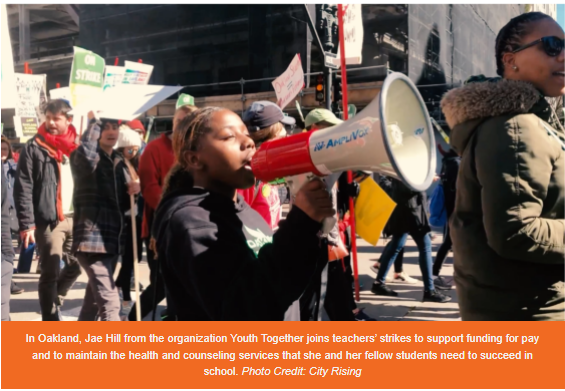
We’re continuing a popular TFN Annual Conference tradition for TFN2022! Join us March 13 from 6:30 to 8:30 p.m. for Sunday Night at the Movies, which will feature movie-friendly snacks and a timely, thought-provoking film followed by a Q&A.
This year’s film is CITY RISING: Youth & Democracy, a one-hour documentary that follows the stories of youth leaders, allies and organizations as they challenge institutional and systemic issues through civic engagement.
The film dives into the role and work of youth organizations in California, demonstrating how young people are organizing their communities to participate in public policy and make lasting change in pursuit of a more just and equitable future for themselves and the world they live in. More engaged, better trained, better allied, and on the shoulders of a rich legacy, young people are fostering hope for a better future for themselves and the nation.
The effects of these movements are far-reaching, and their voices will ultimately impact the social health of communities across the country and beyond.
About the series: City Rising is a documentary series that examines social justice issues affecting California communities, illuminating the journey of California’s neighborhoods advocating for policy change to improve upward mobility for their communities. CITY RISING is produced and presented by KCET, one of Southern California’s two flagship PBS stations, with support from The California Endowment.
When Waters Rise: Pre-Conference Breakfast
Monday March 14 | 9:00 AM PT
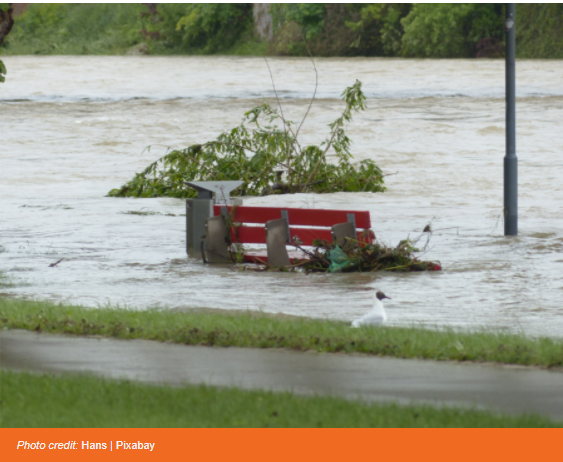
The Greater New Orleans Foundation launched the When Waters Rise Initiative in June 2018 by bringing together community foundations and place-based funders to discuss foundations’ roles and responsibilities in contributing to equitable disaster recovery, rebuilding and long-term resilience in coastal communities and geographies most vulnerable to sea level rise and major storms. The informal network of more than 80 funders and partners continued to convene to discuss challenges, share best practices and codify lessons learned well into the pandemic.
Participants have expressed interest in exploring formalizing a network that supports ongoing peer learning and collaboration in disaster response. The Greater New Orleans Foundation, with support from the Ford Foundation, will assess the feasibility of a formal disaster philanthropy and response network by getting a better understanding of the landscape and value-add that a network like this could have for its members.
This is the second TFN Annual Conference to hold space for a When Waters Rise gathering: The Greater New Orleans Foundation hosted a When Waters Rise event at our 2019 Anniversary Conference in Miami, a coastal city facing the threats of sea-level rise and other climate impacts.
We’re thrilled to give our TFN2022 attendees the opportunity to attend this pre-conference breakfast convening to continue the conversation on the West Coast in San Diego.
Peer-to-Peer Sharing
Monday March 14 | 10:15 AM PT
*Concurrent Sessions"
Elly Brown, Co-Executive Director, San Diego Food Systems Alliance
Join us for a food-focused conversation focus on San Diego County Food Vision 2030, which aims to guide collective action toward a healthy, sustainable and just food system over the next decade. We’ll learn about Food Vision 2030, launched by the San Diego Food System Alliance in 2021 following a two-year planning process that engaged more than 250 cross-sector organizations and nearly 3,000 people — primarily low-income residents, food producers, workers, business owners and tribal communities.
Pamela Gray Payton, VP Community Impact, Chief Impact and Partnerships Officer at the San Diego Foundation
Join us for a conversation with Pamela Gray Payton, VP Community Impact, Chief Impact and Partnerships Officer at the San Diego Foundation (TSDF), to learn more about TSDF’s strategic priorities to advance racial and social justice initiatives. In 2020, with seed funding from TSDF, SDG&E, Wells Fargo Bank, and Cox Communications, as well as guidance from a community-led advisory committee, the Black Community Investment Fund (BCIF) was launched to increase racial equity and generational wealth for Black San Diegans. Gray Payton will highlight the Black Homebuyer Program which is helping to narrow the gap of racial wealth in San Diego by providing wealth-building opportunities through Black homeownership.
Theme Dinner: Making Our Democracy Work for All
Monday, March 14 | 7:00 PM PT
The Partnership for Southern Equity and The Funders Network invite you to a special dinner conversation about ways funders and community partners are joining forces to make our democracy work for all. The dinner program will highlight several exciting initiatives to grow the infrastructure and nurture people-powered leadership for community and social change, including efforts to develop youth as civic leaders. Please join us for good food, drinks and company.
Theme Dinner: Inclusive Economies
Monday, March 14 | 7:00 PM PT
Please join colleagues at the Irvine Foundation and TFN for a dinner and discussion of ways that funders are supporting Inclusive Economies strategies. The dinner program will feature program staff at the Irvine Foundation sharing how their focus on inclusive economic planning and priority communities is providing opportunities for BIPOC and low-wage earning communities to thrive through access to good quality jobs. We’ll invite dinner colleagues to share their work to advance inclusive prosperity and we’ll reserve lots of time for conversation and getting to know one another.
Smart Growth California Funder Dinner
Monday, March 14 | 7:00 PM PT
Come learn more about and connect with funders active in Smart Growth California’s statewide steering committee, San Joaquin Valley Funders’ Collaborative, Los Angeles Funders’ Collaborative and San Diego Funders’ Collaborative. After two years of meeting virtually, we’re ready and excited to meet in person and do what we do best, learning together, building relationships, aligning our work and pursuing opportunities for collaboration. The dinner is open to Smart Growth California workgroup members, our larger statewide funder network and national funders who are funding in California.
Tuesday Night Reception
Tuesday, March 15 | 5:30 PM PT
Come grab a drink and meet up with colleagues after our Mobile Workshops!
San Diego Funders' Collaborative Dinner
Tuesday, March 15 | 7:00 PM PT
The San Diego Foundation, International Community Foundation, The California Endowment, Catalyst of San Diego and Imperial Counties and Smart Growth California (an initiative of TFN) invite you to attend a dinner to informally launch the San Diego Funders’ Collaborative, a space that facilitates learning, relationship building, alignment and collaboration across a broad set of issues related to cultivating healthy, equitable and sustainable communities. If you are a funder that is based in and/or funds in the San Diego Region (or are considering funding in the region), and you’re interested in joining this emerging funder collaborative table, then we invite you to join us in person for some good food, drinks and conversation.
Post-Conference Events
Communities First: Ensuring Racial Equity in Infrastructure Spending
Wednesday, March 16 | 12:30 PM PT
As the nation prepares for the largest federal spending on infrastructure and economic development in generations, now is the time for philanthropy, community, and the public sector to come together to ensure that funds flow equitably, smoothly, and directly into BIPOC communities.
It is no secret that previous federal infrastructure and economic development dollars were weaponized against communities of color, from redlining to “urban renewal” to highway construction to the race-based inequities of the GI Bill and Social Security.
If we are organized, strategic, and unapologetic about the past, present, and future, we will make sure that public money is never again used to hurt communities of color and is from here onwards used to repair harm and to build generational wealth for BIPOC communities.
Communities First, in partnership with TFN, Environmental Grantmakers Association, and Neighborhood Funders Group, invites you to attend a critically urgent funder and federal partnership briefing:
This two-hour session will feature:
- Philanthropic leaders with experience in racial equity funding;
- Public sector employees committed to racial equity and applying equity to infrastructure investments; and
- Movement leaders with big and bold ideas on how reparative and healing infrastructure dollars can truly be.
Join this conversation and join us in putting communities first — now and always.
(Please note: We are offering a virtual option for this funder & federal partnership meeting for those unable to join us in San Diego.)
Check out Pre- and Post-conference Events at #TFN2022!

→ REGISTER HERE!
As our conference quickly approaches, we wanted to highlight the pre-and-post conference events happening at TFN’s 2022 Annual Conference: Seize the Moment.
Arriving early to San Diego?
Join us for Sunday Night at the Movies for a powerful look at youth activism and civic engagement. We're also creating space for a breakfast convening focused on disaster response, recovery and resilience planning in vulnerable communities, hosted by the Greater New Orleans Foundation.
Are you able to stay late?
Don't miss out on our funder and federal partnership briefing, co-hosted by TFN, Environmental Grantmakers Association and Neighborhood Funders Group immediately following our closing plenary.
Our pre- and post-conference events are meant to bring funders together to expand our learning, foster collaboration and catalyze action that addresses systemic inequities and move us toward racial, economic and environmental justice.
As we plan for our in-person gathering, we remain committed to the wellbeing of our attendees, vendors and TFN team. Please take a look at our updated Health & Safety section to learn more about our policies on coronavirus vaccines, testing and mask requirements.
Don't forget to register for #TFN2022, by Friday, Feb. 18 to take advantage of our Early Bird Rates. Our room block at the US Grant has been extended to Feb. 18 as well.
Read on for more information on pre- and post-conference events — and take a look at our preliminary TFN2022 Conference Agenda to see what else we'll be learning in San Diego!
PRE-CONFERENCE EVENTS
Sunday Night at the Movies | City Rising: Youth & Democracy
Sunday, March 13 | 6:30 PM PT

We’re continuing a popular TFN Annual Conference tradition for TFN2022! Join us March 13 from 6:30 to 8:30 p.m. for Sunday Night at the Movies, which will feature movie-friendly snacks and a timely, thought-provoking film followed by a Q&A.
This year’s film is CITY RISING: Youth & Democracy, a one-hour documentary that follows the stories of youth leaders, allies and organizations as they challenge institutional and systemic issues through civic engagement.
The film dives into the role and work of youth organizations in California, demonstrating how young people are organizing their communities to participate in public policy and make lasting change in pursuit of a more just and equitable future for themselves and the world they live in. More engaged, better trained, better allied, and on the shoulders of a rich legacy, young people are fostering hope for a better future for themselves and the nation.
The effects of these movements are far-reaching, and their voices will ultimately impact the social health of communities across the country and beyond.
About the series: City Rising is a documentary series that examines social justice issues affecting California communities, illuminating the journey of California’s neighborhoods advocating for policy change to improve upward mobility for their communities. CITY RISING is produced and presented by KCET, one of Southern California’s two flagship PBS stations, with support from The California Endowment.
When Waters Rise: Pre-Conference Breakfast Convening
Monday, March 14 | 9:00 AM PT

The Greater New Orleans Foundation launched the When Waters Rise Initiative in June 2018 by bringing together community foundations and place-based funders to discuss foundations’ roles and responsibilities in contributing to equitable disaster recovery, rebuilding and long-term resilience in coastal communities and geographies most vulnerable to sea level rise and major storms. The informal network of more than 80 funders and partners continued to convene to discuss challenges, share best practices and codify lessons learned well into the pandemic.
Participants have expressed interest in exploring formalizing a network that supports ongoing peer learning and collaboration in disaster response. The Greater New Orleans Foundation, with support from the Ford Foundation, will assess the feasibility of a formal disaster philanthropy and response network by getting a better understanding of the landscape and value-add that a network like this could have for its members.
This is the second TFN Annual Conference to hold space for a When Waters Rise gathering: The Greater New Orleans Foundation hosted a When Waters Rise event at our 2019 Anniversary Conference in Miami, a coastal city facing the threats of sea-level rise and other climate impacts.
We’re thrilled to give our TFN2022 attendees the opportunity to attend this pre-conference breakfast convening to continue the conversation on the West Coast in San Diego.
POST-CONFERENCE EVENTS
Communities First: Ensuring Racial Equity in Infrastructure Spending
Wednesday, March 16 | 12:30 PM PT

As the nation prepares for the largest federal spending on infrastructure and economic development in generations, now is the time for philanthropy, community, and the public sector to come together to ensure that funds flow equitably, smoothly, and directly into BIPOC communities.
It is no secret that previous federal infrastructure and economic development dollars were weaponized against communities of color, from redlining to “urban renewal” to highway construction to the race-based inequities of the GI Bill and Social Security.
If we are organized, strategic, and unapologetic about the past, present, and future, we will make sure that public money is never again used to hurt communities of color and is from here onwards used to repair harm and to build generational wealth for BIPOC communities.
Communities First, in partnership with TFN, Environmental Grantmakers Association, and Neighborhood Funders Group, invites you to attend a critically urgent funder and federal partnership briefing:
This two-hour session will feature:
- Philanthropic leaders with experience in racial equity funding;
- Public sector employees committed to racial equity and applying equity to infrastructure investments; and
- Movement leaders with big and bold ideas on how reparative and healing infrastructure dollars can truly be.
Join this conversation and join us in putting communities first — now and always.
(Please note: We are offering a virtual option for this funder & federal partnership meeting for those unable to join us in San Diego.)
We can't wait to see you in San Diego! Register HERE!
Check out our Mobile Workshops at #TFN2022!
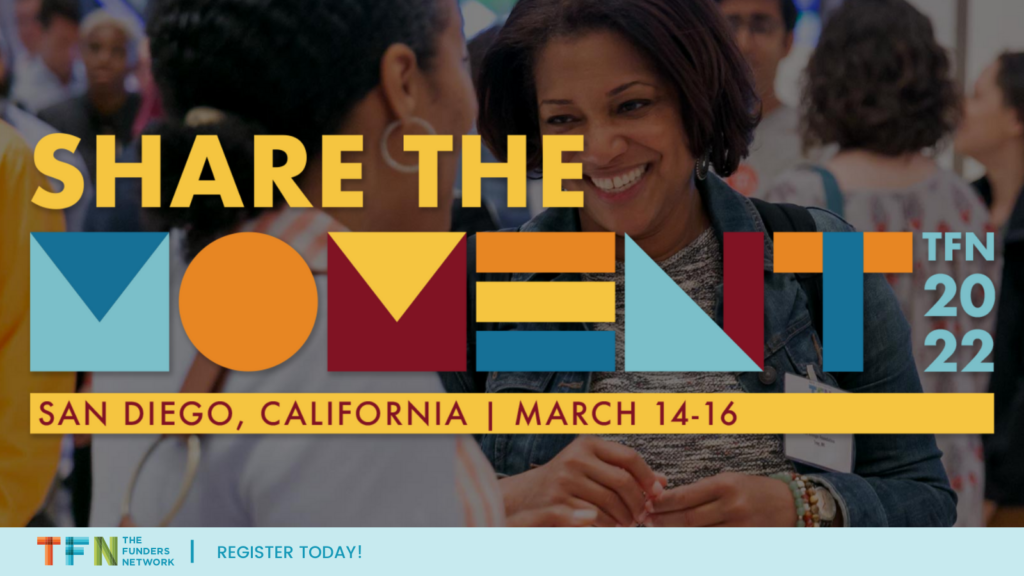
We're excited to learn and share together at TFN’s 2022 Annual Conference: Seize the Moment, which takes place March 14 through 16 in San Diego.
With a diverse population, rich cultural heritage and geographic location as a border community, San Diego provides critical context and opportunities to learn as we address pressing issues such as immigration, climate change, affordable housing and more.
Our TFN2022 Mobile Workshops offer a chance to learn from the places and people of our host city, with an emphasis on community power-building and community-led solutions. Attendees will be able to choose one of five Mobile Workshops, all of which take place Tuesday, March 15.
Make sure to take a look at our TFN2022 Conference Agenda to see what else we'll be learning in San Diego!
The Border, Climate Change & People on the Move
March 15 | 1:30 PM PT
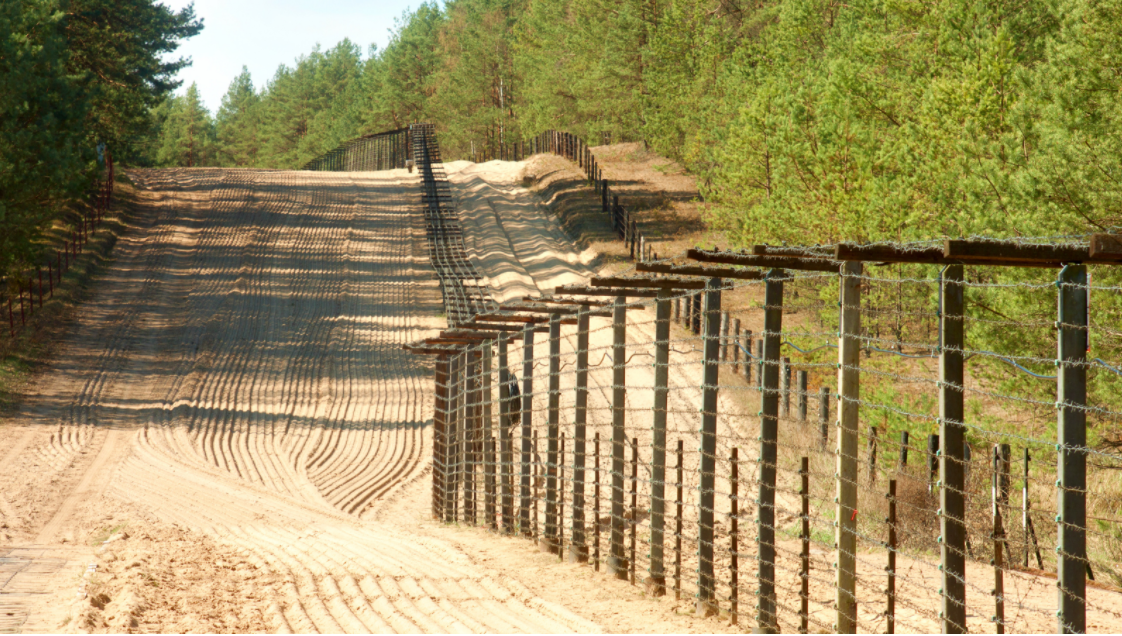
Climate change affects us all. But without a doubt, those most impacted globally are the most vulnerable countries and communities.
Extreme weather events, prolonged droughts, sea-level rise, and natural resource limitations are forcing an average of more than 20 million people to leave their homes annually. The impacts of climate change intensify already existing political tensions and conflicts, creating a threat multiplier for the most at-risk. For the climate refugees arriving to the San Diego-Tijuana border, an uncertain future awaits.
See the border. Explore the connections between climate change, ecological resiliency and immigration. Hear from experts on extirpation and extinction pressures to native flora and fauna. Learn about the migrant experience and what the changing policy landscape means for people on the move. Learn why, no matter where you live, the border matters to you.
Environmental Justice, Gentrification & Reclaiming Communities
March 15 | 1:30 PM PT
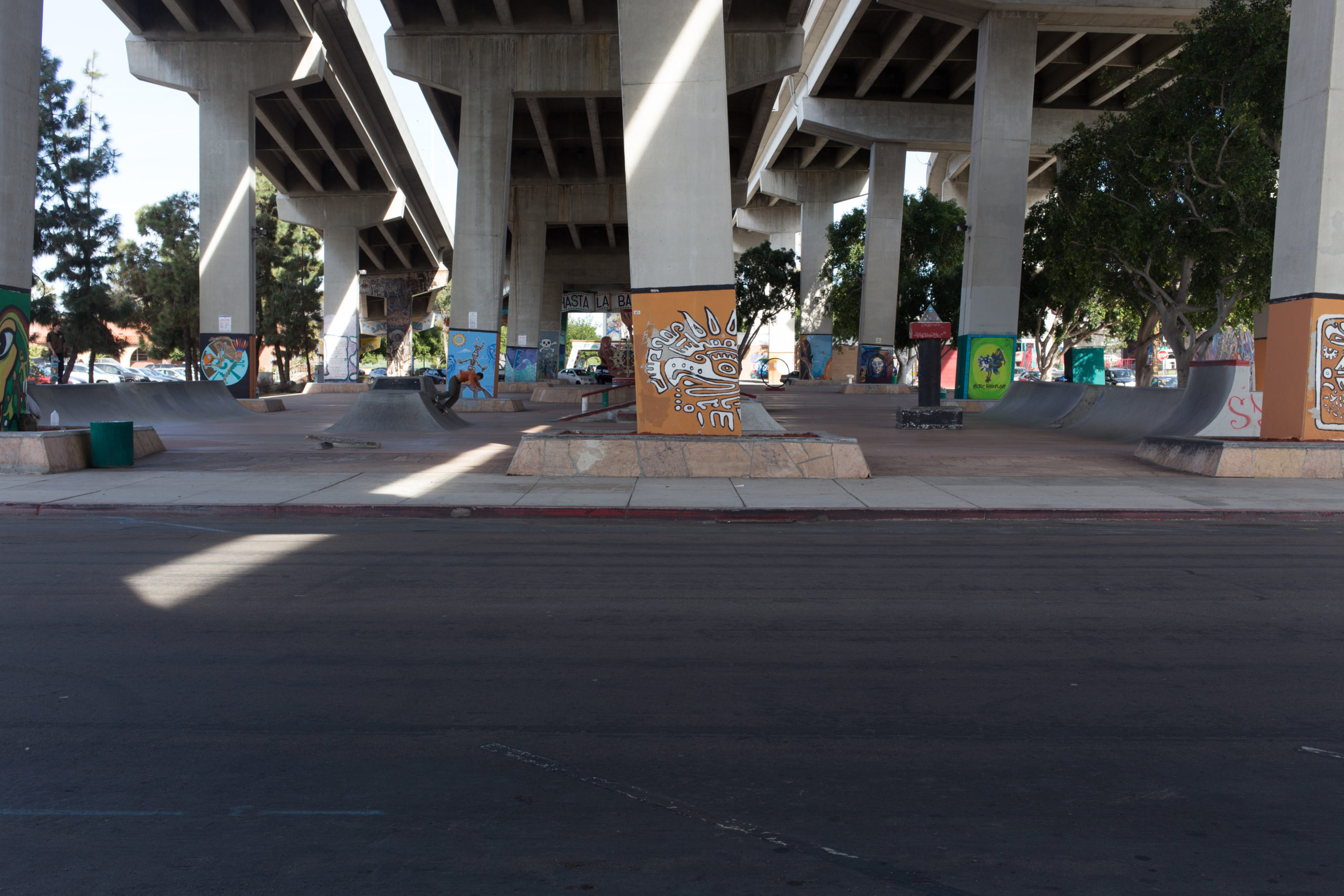
San Diego County is home to communities that are among the most vulnerable to pollution in the state. This mobile workshop will take us through Barrio Logan, one of the region’s most striking examples of how low-income communities and communities of color are disproportionately affected by capitalist-driven, and often racist, planning approaches.
However, this community equally exemplifies the power of organizing for environmental justice — efforts that celebrate a vibrant cultural identity and achieve healthy, art-filled, reclaimed communities. We’ll experience the highlights of this cultural gem, as well as observe the immense impact of global trade at the Port of San Diego. We’ll also examine how the forces of gentrification and displacement are adding to the challenges of this environmental justice neighborhood.
Housing, Transit & Inclusive Economies
March 15 | 1:30 PM PT

According to The Housing and Transportation Affordability Index San Diego, moderate-income families pay an average of 67 percent of their household income towards housing and transportation expenses alone. This rate rises sharply for low-income San Diego households. Furloughs and layoffs resulting from the pandemic have put increased pressure on families who were already struggling to make ends meet. This is especially true for families of color and families with a female head-of-household, both more likely to experience an eviction.
This mobile workshop by bus will take participants through rapidly gentrifying City Heights, a vibrant gem of ethnic diversity and powerful community organizing. In this neighborhood, residents are fighting for equitable investments, affordable housing, and livable neighborhoods. We will hear from the community organizers and social justice groups who successfully pushed for the protections, policies and infrastructure to protect the most vulnerable residents from eviction and to ensure that they had dependable and safe transit at the height of the pandemic and beyond.
The Rising Seas & San Diego Bay
March 15 | 1:30 PM PT
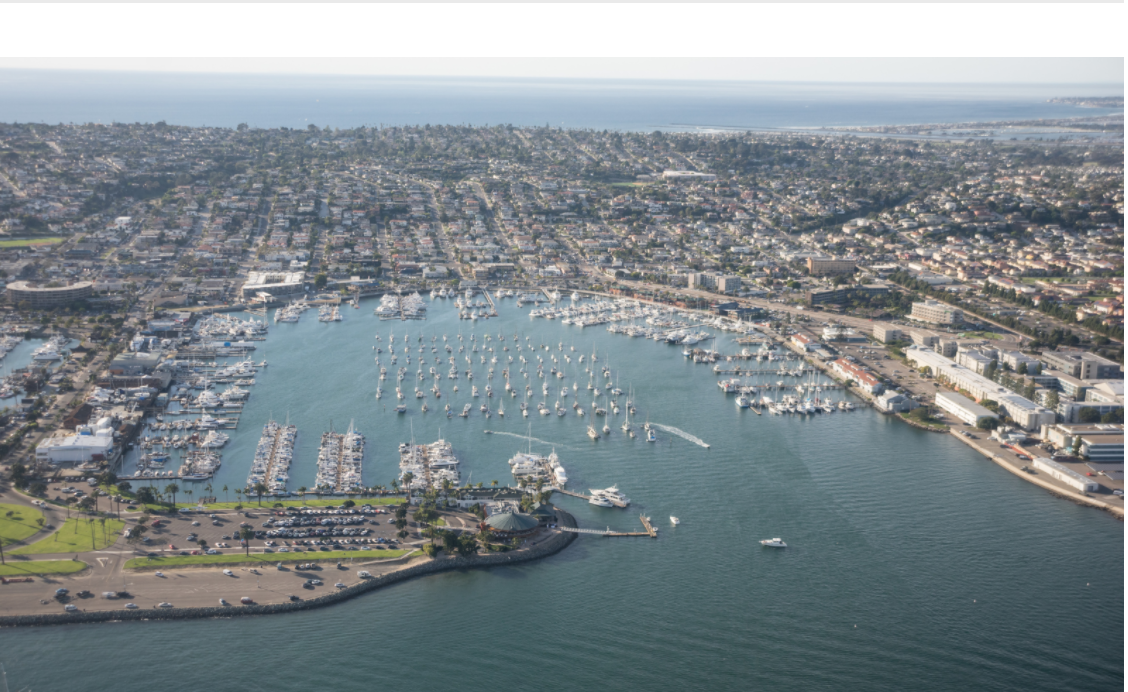
Within a mere 12-mile span, San Diego Bay’s waterfront boundaries are home to five independent city jurisdictions and some of the region’s most important military installations. These bayside communities are also facing the twin pressures of rising seas and massive growth and development. This tour will take you around San Diego Bay and through communities grappling with the implications and politics of managed retreat in response to rising sea levels and coastal flooding, as well as the potential impacts of a large-scale waterfront development that would include a 1,600-room hotel and 400,000-square-foot convention center. Hear from government leaders about the innovative solutions they are advancing to protect wetland habitats, reduce flooding, and reinvest in surrounding communities.
Food for Power
March 15 | 1:30 PM PT

Our Food for Power Mobile Workshop will explore ways urban agriculture and mutual aid efforts can fight isolation and hunger, and help communities become more empowered, vibrant and healthy. In a region that is one of the nation’s top refugee resettlement destinations and with a high percent of immigrant families and communities from throughout the world, food takes on an important cultural and social significance that can underlie New Americans’ transitions to life in this country.
However, growing inequity and food deserts limit the resources and access families have to healthy foods. One in three people in San Diego County is nutrition insecure and the COVID-19 pandemic exacerbated already existing food injustices. Of those struggling to put healthy meals on their table, 28% were newly nutrition insecure in 2020. Ironically, those that put the food on our tables are also more likely to struggle to feed their own families. We will hear how community residents have stepped forward to ensure their most vulnerable neighbors have access to healthy and nutritious food.
Volunteer Opportunity: Olivewood Gardens & Learning Center
March 15 | 1:30 PM PT
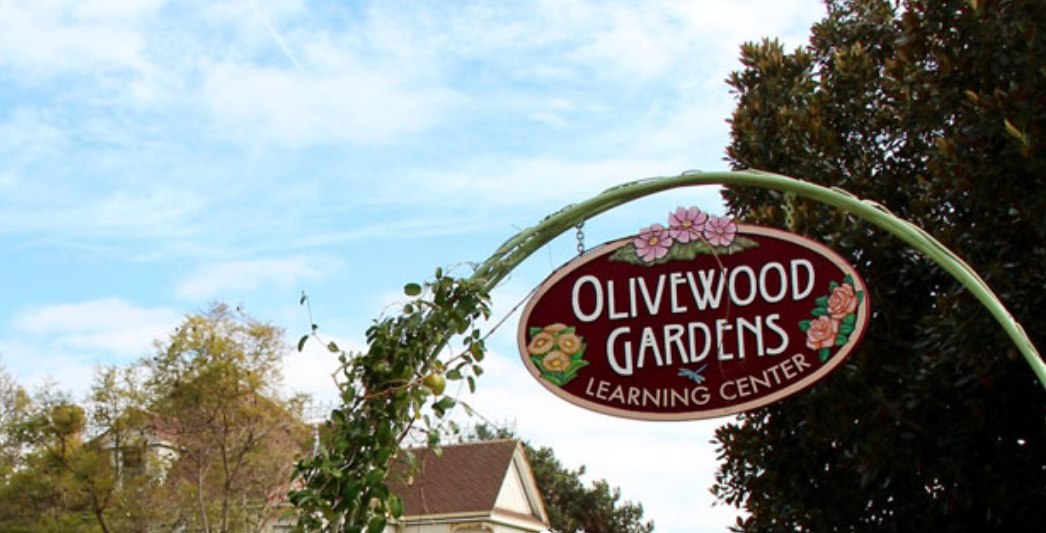
Ready to dig in and impact our food system? Join us for an afternoon of outdoor, hands-on activities in one of San Diego’s most notable gathering and learning spaces. Olivewood Gardens and Learning Center is a garden and nutrition education facility that inspires communities to champion health equity and food justice. Located in one of the San Diego neighborhoods with the highest barriers to healthy food access, Olivewood is a true community force. Through this volunteer opportunity, we will take a tour of Olivewood’s facility to learn more about their programs, philosophy, and vision!
Then guests will get their hands dirty! Help Olivewood maintain and revitalize key areas of their eight-acre urban farm where organic fruits and vegetables are grown to fill gaps in the local food pipeline.
#TFN2022 California Highlights
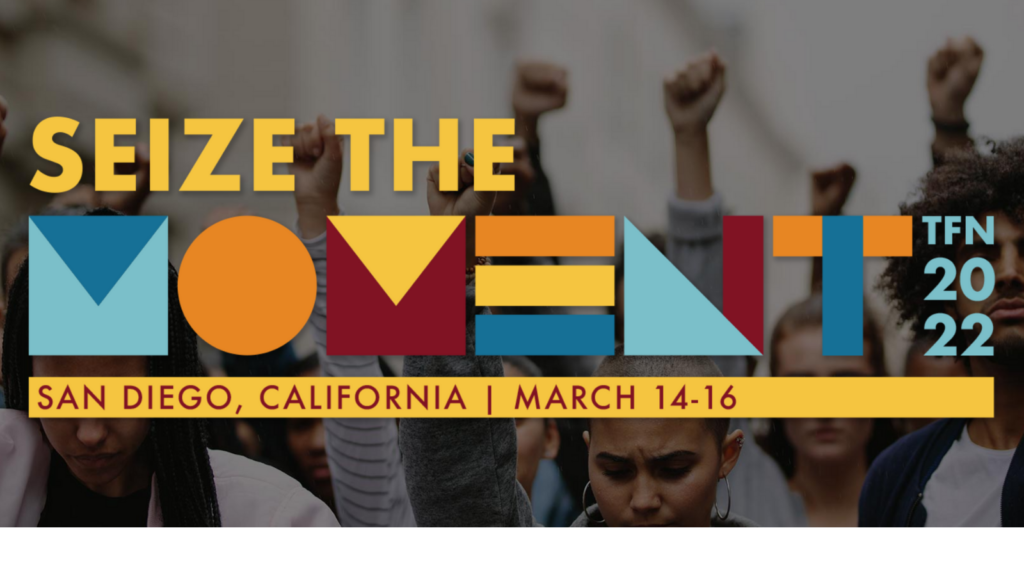
→ Click here to register!
As TFN’s 2022 Annual Conference: Seize the Moment is fast approaching, we wanted to lift up a few events that may be of interest.
Below are some agenda highlights that we hope connect to your work — many of which feature funders and organizations that are connected to to Smart Growth California, an initiative of The Funders Network.
TFN2022 sessions are meant to be intersectional and cross-cutting. Our San Diego conference, which takes place March 14 to 16, will give funders an opportunity to address interrelated challenges that impact people and communities, such as climate mitigation, community resilience and infrastructure.
Be sure to join us for Smart Growth California's Funder Dinner on Monday, March 14 at 7:00 PM PT, along with a dinner for funders active in the San Diego Region on Tuesday, March 15th at 7:00 PM PT.
We're also excited to share that this year's TFN Conference Co-Chairs are all California-based funders. You can read this welcome message from Christiana DeBenedict of The San Diego Foundation, Craig Martinez of The California Endowment and Marisa Aurora Quiroz of the International Community Foundation.
Take a look at our preliminary TFN2022 Conference Agenda to see what else we'll be learning in San Diego!
Day 1 | Monday, March 14
*Concurrent Breakout Sessions*
Why Are All of the Black Funders Sitting Together at the Conference? | 2:00 PM PT


Taking a page from Beverly Daniel Tatum’s book Why Are All the Black Kids Sitting Together in the Cafeteria?: And Other Conversations about Race, we’ll create a space for honest conversation about and reflections on the specific experiences of Black funders working in philanthropy.
Alumni of TFN’s 2020 PLACES Fellowship will deliver a Black Girl Magic experience designed to unpack Blackness in a white context. During this interactive session, attendees will join in on a point/counterpoint discussion examining the question: Why Are All of the Black Funders Sitting Together at the Conference?
Joining us in conversation (pictured above from left):
Alexis Bivens, Program Director, Emily Hall Tremaine Foundation, 2020 PLACES Fellow
Rayana Grace, Program Officer, Island Foundation, 2020 PLACES Fellow
Rebalancing Power & Profit in Rural America's Communities of Color | 2:00 PM PT
Rural America, especially communities of color, face the highest rates of poverty and disinvestment in the U.S. Eighty-five percent of “persistent poverty counties” — defined as having a population of 20 percent or more living at or below the poverty line for at least 30 years — are rural. One in four children in rural America lives in poverty. But these communities receive minimal investment from federal sources and receive less than 8 percent of philanthropic giving. We’ll hear from community developers and Community Development Financial Institutions working in rural areas, with a focus not only on the challenges facing these regions — but the innovations needed to truly support rural communities of color.
Featured Speakers:
Lakota Vogel, Executive Director, Four Bands Community Fund
Jackie Pata, President/CEO, Tlingit and Haida Regional Housing Authority
Susan Anderson, Senior Director, Enterprise Community Partners (Moderator).
(Enterprise is active in Smart Growth California's Statewide Steering Committee & Los Angeles Funders' Collaborative.)
Dismantling Housing Segregation: A Land-use Policy Roadmap for Systemic Change | 2:00 PM PT
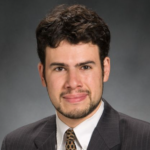

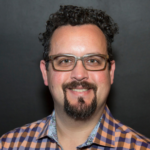

This interactive session will explore the role of state and local land-use policies in creating and maintaining racial segregation. We’ll also examine how coordinated legal advocacy, organizing and public education can create structural change that enables Black, Latinx and other people of color to equitably access historically exclusionary communities and retain equity in gentrifying neighborhoods.
Joining us in conversation (pictured above from left):
Adam Gordon, Executive Director, Fair Share Housing Center
Cashauna Hill, Executive Director, Louisiana Fair Housing Action Center
Samuel Tepperman-Gelfant, Managing Attorney, Public Advocates
Jennifer Martinez, Director of Advocacy for Housing Affordability at the Chan Zuckerberg Initiative, (Moderator)
(Both Public Advocates and the Chan Zuckerberg Initiative are based in California.)
Demanding Equity & Justice in Federal/State Water Investments | 2:00 PM PT
Water infrastructure is an environmental justice issue: For years, community and justice leaders have warned about the woefully dangerous state of our water infrastructure. The impacts of these broken and failing systems fall especially hard on BIPOC and low-income communities.
This session will feature leaders from the Water Equity and Climate Resilience Caucus, co-chaired by PolicyLink and the Gulf Coast Center for Law and Policy, who will share how they have built strategy, peer power, policy momentum and equitable change for their communities. They’ll share how this work is influencing key federal policy opportunities — and how philanthropy is partnering with them to level up these efforts.
Featured Speakers:
Monica Lewis-Patrick, President & CEO, We the People
Nayyirah Shariff, Director, Flint Rising
Mariana Del Valle Prieto Cervantes, Water Equity and Ocean Program Director, Green Latinos
Alesandra Nájera, Program Officer, Water Foundation, (Moderator), (The Water Foundation is active in Smart Growth California's Statewide Steering Committee, San Joaquin Valley Funders’ Collaborative and the Los Angeles Funders’ Collaborative)
Flash Talk | 3:45 PM PT
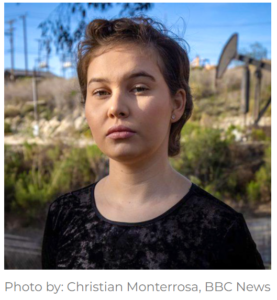
Nalleli Cobo, Campaign Organizer, STAND-L.A.
Join us to hear from this passionate youth organizer, who is now a campaign organizer for STAND-L.A., an environmental justice coalition of community groups that seeks to end neighborhood drilling to protect the health and safety of Angelenos on the front lines of urban oil extraction.
We’ll hear her firsthand account of inspired and motivated her to take action at an early age — and why philanthropy needs to listen to the voices of this next generation.
Day 2 | Tuesday, March 15
Morning Plenary | 9:00 AM PT
Community organizers work tirelessly to bring about change in the communities they serve. Each win is a step toward building a broader movement for justice, self-determination and transformational change. While foundations increasingly recognize that change starts with community organizing and shifting power, and many share the goals of frontline leaders, the ways that foundations have supported organizing often have caused more harm than good. Join us for an honest conversation with community organizers and funders as they pull back the curtain on how philanthropic investments have come up short, and share wisdom on how funders can support community organizing differently to much greater effect and impact.
Featured Speakers:
Carmen Rojas, President & CEO, Marguerite Casey Foundation
Nikkita Oliver, Executive Director, Creative Justice
Crystal Haling, Executive Director, The Libra Foundation
Diane Takvorian, Executive Director, Environmental Health Coalition
*Concurrent Breakout Sessions*
The Future of Climate Action is Latinx | 10:30 AM PT
Join us for an intergenerational conversation led by Latinx youth leaders at the forefront of the climate movement, in dialogue with more veteran members of the Latinx community, on the future of climate action.
Featured Speakers:
Paloma Aguirre, City of Imperial Beach Councilwoman and Senior Program Officer for International Community Foundation
Mary Skelton Roberts, Senior VP for Programs, Energy Foundation, 2011 PLACES Fellow
(The Energy Foundation is based in California)
Denisce Sarai Palacios, Jolt Action (Moderator)
People, Parks & Power: Movement Building for Park & Green Space Equity | 10:30 AM PT
This session features advocates and public agency leaders at the vanguard of the park equity movement who are working to ensure that disinvested, park deficient communities are fair, just, and green. We’ll learn how funders can support park equity work, including a look at a new, joint national funding initiative of Robert Wood Johnson Foundation and Doris Duke Charitable Foundation, “People, Parks, and Power.”
Featured Speakers:
Sean Watts, Owner, SM Watts Consulting
Sandra Celedon, President and CEO, Fresno Building Healthy Communities
Clement Lau, Departmental Facilities Planner, Los Angeles Department of Parks and Recreation & Los Angeles County Regional Parks and Open Space District
Elva Yanez, Director of Health Equity, Prevention Institute (Moderator)
(All three speakers are based in California)
Mobile Workshops
Our Mobile Workshops offer a chance to learn from the places and people of our host city, with an emphasis on community power-building and community-led solutions. New to this year’s Mobile Workshop lineup: an opportunity to get your hands dirty volunteering at Olivewood Gardens and Learning Center, an urban farm and community gathering space working to overcome barriers to food access.
→ Learn more here
San Diego Funders' Collaborative Dinner | 7:00 PM PT
The San Diego Foundation, International Community Foundation, The California Endowment, Catalyst of San Diego and Imperial Counties and Smart Growth California (an initiative of TFN) invite you to attend a dinner to informally launch the San Diego Funders’ Collaborative, a space that facilitates learning, relationship building, alignment and collaboration across a broad set of issues related to cultivating healthy, equitable and sustainable communities. If you are a funder that is based in and/or funds in the San Diego Region (or are considering funding in the region), and you’re interested in joining this emerging funder collaborative table, then we invite you to join us in person for some good food, drinks and conversation.
Day 3 | Wednesday, March 16
Agroecology in California's San Joaquin Valley | 9:00 AM PT
In this session, we’ll learn about the collaborative movement for solutions in the San Joaquin Valley, California's most industrially farmed region, and discuss the political and ecological movement for ecology in rural California at large. We will learn about the history of the global movement for agroecology and talk through why this movement can serve as a bridge between people living in rural California and the global struggle against corporate capitalist farming. Join this session as we walk through the steps of designing an agroecology project in your community, and discuss the strategies for collaboration across race, ethnicity and class.
Featured Speakers:
Darlene Franco, Chairperson, Wukchumni Tribe
Nicole Celaya, Co-Executive Director, FoodLink for Tulare County
Jeannette Acosta, Founding Member, Gratitude Company (Moderator)
(Smart Growth California's San Joaquin Valley Funders’ Collaborative has supported this work.)
Equity Investments Go National: What We Can Learn from California's Bold Experiment | 9:00 AM PT

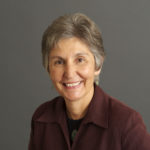

The session will explore lessons from California’s bold experiment as this climate justice greenlining approach goes national. Funders will hear from several community-grounded experts involved in the California program. We’ll also hear a national perspective on a similar initiative proposed by the Biden Administration: “Justice40,” which aims to deliver 40 percent of benefits from relevant federal investments to disadvantaged communities, using the EPA’s data screen. The session will update funders on how this initiative is redirecting billions of federal dollars into climate, health and equity work. (Please note the title of this session was updated Feb. 10.)
Featured Speakers:
Joining us in conversation (pictured above from left):
Hana G. Creger, Senior Program Manager, Climate Equity, Greenlining Institute
Diane Takvorian, Executive Director, Environmental Health Coalition
Ben Russak, Director of Public Partnerships, Liberty Hill Foundation, (Moderator)
(The Liberty Hill Foundation is a Smart Growth California Funder, and active in the Los Angeles Funders Collaborative)
Flash Talk | 10:50 AM PT
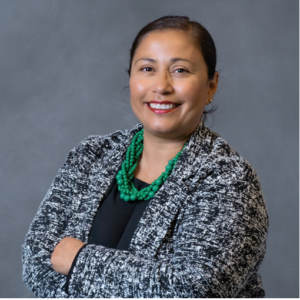 Norma Chávez-Peterson, ACLU of San Diego and Imperial Counties, will join us for a Flash Talk sharing her insights on the ongoing fight for civil liberties and justice for marginalized people — and why funders need to step up and “seize the moment” in this pivotal and fragile moment in American democracy.
Norma Chávez-Peterson, ACLU of San Diego and Imperial Counties, will join us for a Flash Talk sharing her insights on the ongoing fight for civil liberties and justice for marginalized people — and why funders need to step up and “seize the moment” in this pivotal and fragile moment in American democracy.
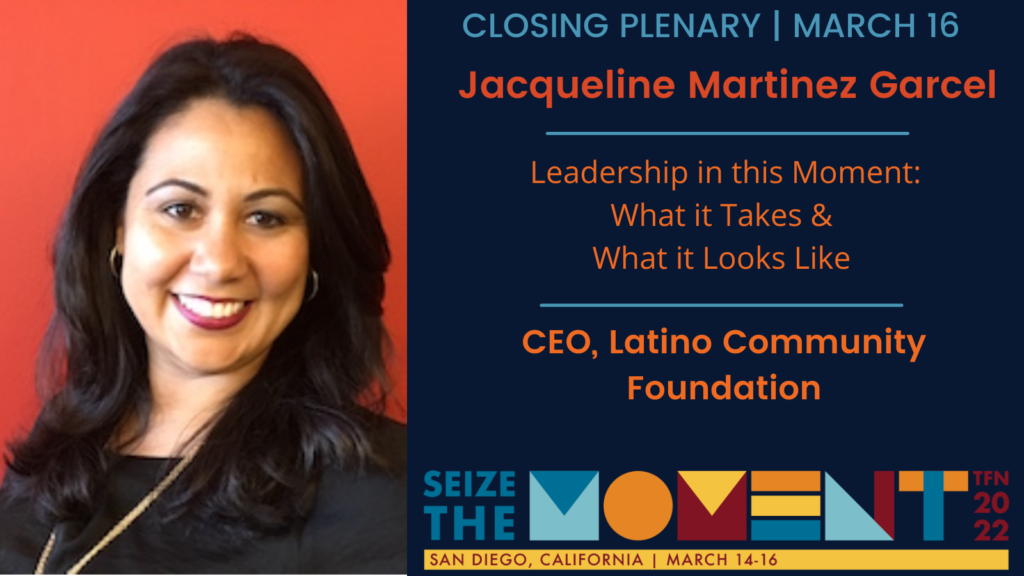
Leadership in this Moment: What it Takes & What it Looks Like | 11:00 AM PT
In frontline communities across the country, Black, brown and Indigenous leaders are fiercely taking risks and pushing radical shifts, working across silos and sectors, and nurturing the next generation of community changemakers.
They are the first to provide mutual aid and support, to stand up to cascading injustices, to build political power, and to demand change. To meet the needs of the communities they serve, they are helping build movements and modeling new leadership formations.
Yet the painful truth is that these leaders are managing multiple crises with extremely limited resources.
In our closing plenary, we will hear from Jacqueline Martinez Garcel, CEO at the Latino Community Foundation about what people-centered leadership looks like in these complex and uncertain times — and what it takes to fully support these leaders.
Join us to better understand the many ways that philanthropy must step up, shift norms and actively invest in leaders who are building power to demand racial justice, energy democracy, immigration reform, voting rights and other critical issues.
Partners for Places Mini Grants: Applications Now Open for Round 4!
Mini Grants Now Available!
Deadline Extended: Applications Due March 31, 2022
Mini Grant Application
The Funders Network (TFN), in partnership with the Urban Sustainability Directors Network, is pleased to announce a new round of Partners for Places Mini Grants.
These grants are available to help local governments, place-based funders, and frontline community groups build relationships, align around project ideas — and ideally develop a proposal that centers racial equity in water, sustainability, and/or climate action work.
Partners for Places Mini Grants are designed to strengthen the relationship between the three partners in order to aid in the development of a full and jointly developed Partners for Places matching grant proposal. Applicants can receive up to $10,000 in funding, which can be used to hire experts and/or to bring together local government water and/or sustainability department leaders, local funders, and frontline community groups. This grant requires the hiring of an equity expert to facilitate the integration of equity principles in the collaborative partnership processes. Frontline community members may be compensated for their participation.
Update: Mini Grant application deadline has been extended to March 31, 2022 by 11:59 PM ET.
→ Click HERE to apply now!
About Partners for Places

A joint effort of TFN and USDN, Partners for Places is a matching grant program that improves U.S. and Canadian communities by building partnerships between local government leaders, frontline community groups, and place-based funders. These sustainability efforts take place from coast to coast, in communities both large and small, and focus largely on empowering and engaging low-income neighborhoods.
To date, Partners for Places has awarded nearly $8.5 million across the U.S. and Canada in this successful matching grant program, leading to over $18 million in investments.
The matching grant program brings national funder investors together with place-based funders to support equitable sustainable climate action and green stormwater infrastructure projects. The program is currently supported by six investor foundations: The Allen H. and Selma W. Berkman Charitable Trust, The JPB Foundation, Kendeda Fund, The Kresge Foundation, New York Community Trust and the Pisces Foundation.
Read about the latest round of Partners for Places matching grant recipients here.
To learn about the previous round of Partners for Places Mini Grants, visit here. (All grant announcements can be found on the Partners for Places webpage.)
For questions about the Partners for Places Mini Grants or matching grants program, please reach out to Ashley Quintana.
Partners for Places FAQ’s
→ Where is Partners for Places making an impact?
Read previous grant announcements and explore the Partners for Places Grantee Map here.
→ Where can I learn about completed Partners for Places projects?
Visit the Partners for Places Idea Bank to explore what grantees are doing, learning and sharing.
→ When is the next round of Partners for Places matching grants?
Partners for Places will open a new round of funding Feb. 23, 2022.
For more information about Partners for Places, please reach out to Ashley Quintana, ashley@fundersnetwork.org.
GREEN & Urban Water Funders: Time to Register for #TFN2022!

→ Click here to register for TFN 2022!
As TFN’s 2022 Annual Conference: Seize the Moment is fast approaching, we wanted to lift up a few events that may be of interest.
Below are some agenda highlights that we hope connect to your work — many of which feature funders that are involved with our GREEN and Urban Water Funders working groups.
TFN2022 sessions are meant to be intersectional and cross-cutting. Our San Diego conference, which takes place March 14 to 16, will give funders an opportunity to address interrelated challenges that impact people and communities, such as climate mitigation, community resilience and infrastructure.
Take a look at our preliminary TFN2022 Conference Agenda to see what else we'll be learning in San Diego!
Day 1 | Monday March 14
*Concurrent Breakout Sessions*
Creative Financing for Equitable Climate Resilience: What Funders Need to Know | 2 PM PT
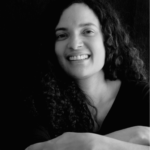


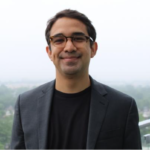
Join us for a dynamic conversation on how foundations can deploy their resources — including money, influence and relationships — to help develop investment ecosystems that enable capital to flow to equitable climate resilience efforts.
We’ll learn about the Center for Community Investment's (CCI) recent publication, Seeding Climate Resilience Through Equitable Investment, which offers case studies of successful climate resilience investments, including the role of philanthropy, surfacing a set of strategies that take aim at the systems underlying the inequitable distribution of risk.
Featured Speakers:
Joining us in conversation (pictured above from left):
Saneta deVuono-powell, Co-Founder and Partner, GroundWorks Consulting
Paulina López, Executive Director, Duwamish River Cleanup Coalition
Alberto J. Rodríguez, Strategic Advisor, Duwamish Valley, City of Seattle
Omar Carrillo Tinajero, Director of Innovation and Learning, Center for Community Investment, PLACES 2020 Fellow (Moderator)
Demanding Equity & Justice in Federal/State Water Investments | 2 PM PT
Water infrastructure is an environmental justice issue: For years, community and justice leaders have warned about the woefully dangerous state of our water infrastructure. The impacts of these broken and failing systems fall especially hard on BIPOC and low-income communities.
This session will feature leaders from the Water Equity and Climate Resilience Caucus, co-chaired by PolicyLink and the Gulf Coast Center for Law and Policy, who will share how they have built strategy, peer power, policy momentum and equitable change for their communities. They’ll share how this work is influencing key federal policy opportunities — and how philanthropy is partnering with them to level up these efforts.
Featured Speakers:
Monica Lewis-Patrick, President & CEO, We the People
Nayyirah Shariff, individual
Mariana Del Valle Prieto Cervantes, Water Equity and Ocean Program Director, Green Latinos
Alesandra Nájera, Program Officer, Water Foundation (Moderator)
Day 2 | Tuesday, March 15
*Concurrent Breakout Sessions*
The Future of Climate Action is Latinx | 10:30 AM PT
Join us for an intergenerational conversation led by Latinx youth leaders at the forefront of the climate movement, in dialogue with more veteran members of the Latinx community, on the future of climate action.
Featured Speakers:
Paloma Aguirre, City of Imperial Beach Councilwoman and Senior Program Officer for International Community Foundation
Mary Skelton Roberts, Senior VP for Programs, Energy Foundation, 2011 PLACES Fellow
Denisce Sarai Palacios, Jolt Action (Moderator)
Participatory Grantmaking: Investing in Shared Power and Community Listening | 10:30 AM PT
This session will explore how to create an authentic participatory grantmaking fund, how these funds are structured and governed, and how they are working to support BIPOC leaders. You will hear from fund grantees, foundation staff who manage these funds, and funders who worked with their foundation boards and grantmaking colleagues to establish the funds.
Featured Speakers:
Alicia Smith, Executive Director, Junction Coalition
Crystal M.C. Davis, Vice President of Policy & Strategic Engagement, Alliance for the Great Lakes
People, Parks & Power: Movement Building for Park & Green Space Equity | 10:30 AM PT
This session features advocates and public agency leaders at the vanguard of the park equity movement who are working to ensure that disinvested, park deficient communities are fair, just, and green. We’ll learn how funders can support park equity work, including a look at a new, joint national funding initiative of Robert Wood Johnson Foundation and Doris Duke Charitable Foundation, “People, Parks, and Power.”
Featured Speakers:
Sean Watts, Owner, SM Watts Consulting
Sandra Celedon, President and CEO, Fresno Building Healthy Communities
Clement Lau, Departmental Facilities Planner, Los Angeles Department of Parks and Recreation & Los Angeles County Regional Parks and Open Space District
Elva Yanez, Director of Health Equity, Prevention Institute (Moderator)
Day 3 | Wednesday March 16
Equity Investments Go National: What We Can Learn from California's Bold Experiment | 9 AM PT



The session will explore lessons from California’s bold experiment as this climate justice greenlining approach goes national. Funders will hear from several community-grounded experts involved in the California program. We’ll also hear a national perspective on a similar initiative proposed by the Biden Administration: “Justice40,” which aims to deliver 40 percent of benefits from relevant federal investments to disadvantaged communities, using the EPA’s data screen. The session will update funders on how this initiative is redirecting billions of federal dollars into climate, health and equity work. (Please note the title of this session was updated Feb. 10)
Featured Speakers:
Joining us in conversation (pictured above from left):
Hana G. Creger, Senior Program Manager, Climate Equity, Greenlining Institute
Diane Takvorian, Executive Director, Environmental Health Coalition
Ben Russak, Director of Public Partnerships, Liberty Hill Foundation (Moderator)
→ Click here to register for TFN 2022!
Be sure to check out the #TFN2022 Annual Conference webpage for updates to the agenda, health and safety protocols and venue information.

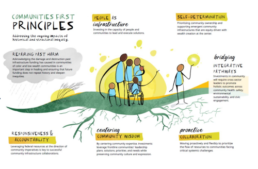
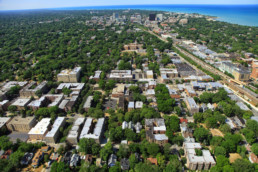
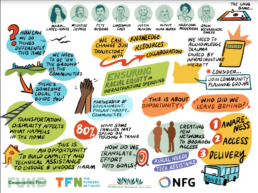
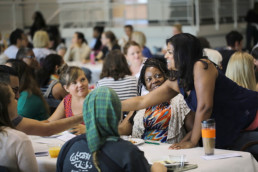
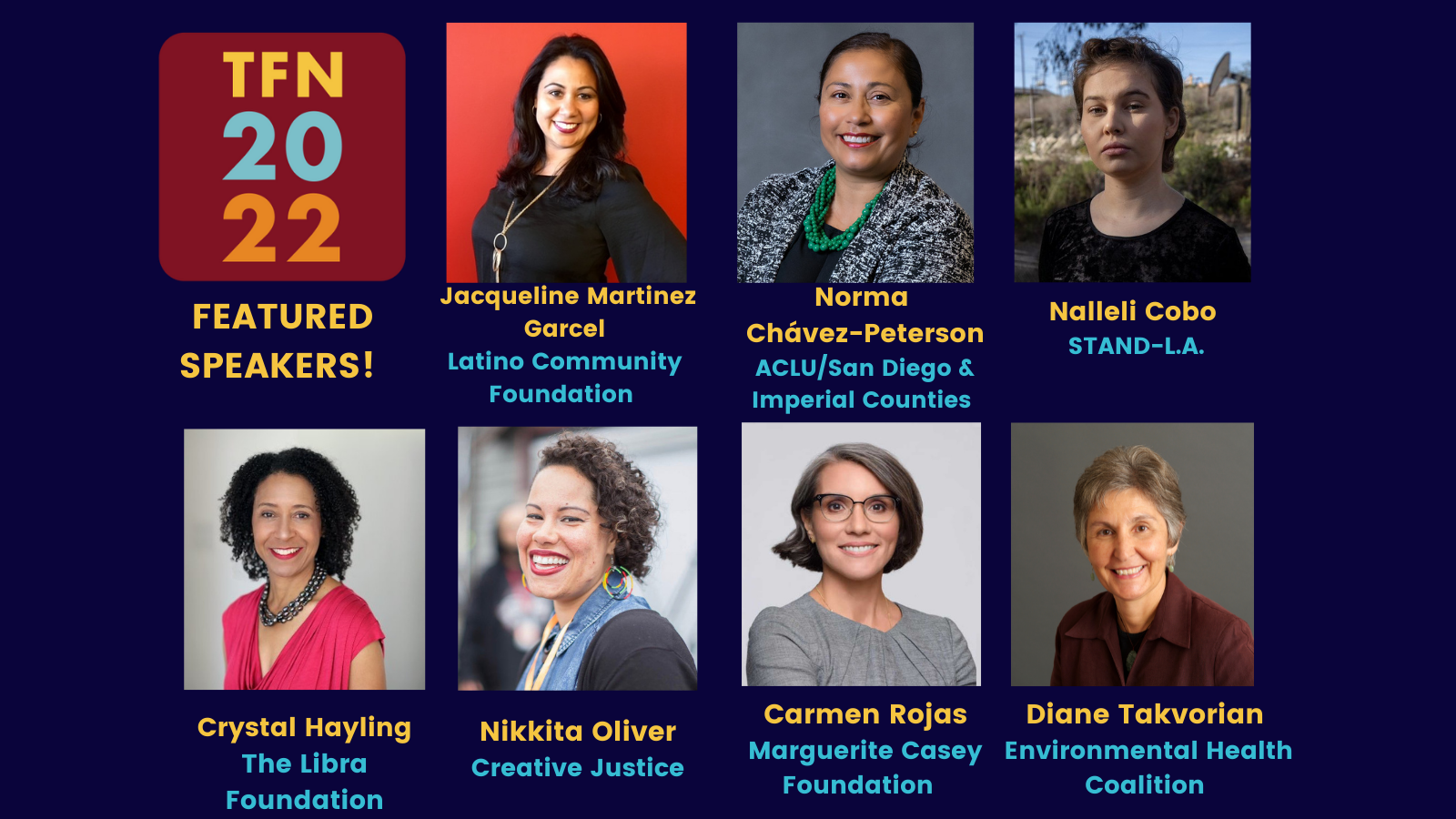 →
→ 